

Introduction to research skills: Home
- Learning from lectures
- Managing your time
- Effective reading
- Evaluating Information
- Critical thinking
- Presentation skills
- Studying online
- Writing home
- Maths and Statistics Support
- Problem solving
- Maths skills by discipline
- Introduction to research skills
- Primary research
- Research methods
- Managing data
- Research ethics
- Citing and referencing
- Searching the literature
- What is academic integrity?
- Referencing software
- Integrity Officer/Panel
- Intellectual property and copyright
- Digital skills home

Research skills allow you to find information and use it effectively. It includes creating a strategy to gather facts and reach conclusions so that you can answer a question.
Starting your research
think about your topic – don’t be too vague or too specific (try mind mapping or keyword searching).
read broadly around your subject (don’t just use Google and Wikipedia). Think about a research question that is clearly structured and builds on literature already produced.
find information using the subject databases. View the Database Orientation Program to learn about databases and using search strategies to refine your search and limit results. View our library tutorial on planning your literature search and look at our library subject guides for resources on your specific topic.
Another good starting point for finding information is our library catalogue Library Search which allows you to search across the library's electronic resources as well as major subject databases and indexes.
carry out a literature review . You may want to include journals, books, websites, grey literature or data and statistics for example. See the list of sources below for more information. Keep a record and organise your references and sources. If you are intending to carry out a systematic review then take a look at the systematic review page on our Research Support library guide.
evaluate your resources – use the CRAAP test (Currency, Relevancy, Authority, Accuracy, Purpose - watch the video, top right).
reach considered conclusions and make recommendations where necessary.

Your research journey.
Why do I need research skills?
they enable you to locate appropriate information and evaluate it for quality and relevance
they allow you to make good use of information to resolve a problem
they give you the ability to synthesize and communicate your ideas in written and spoken formats
they foster critical thinking
they are highly transferable and can be adapted to many settings including the workplace
You can access more in depth information on areas such as primary research, literature reviews, research methods, and managing data, from the drop down headings under Research Skills on the Academic Skills home page. The related resources in the right-hand column of this page also contain useful supporting information.
- Conference proceedings
- Data & statistics
- Grey literature
- Official publications
Books are good for exploring new subject areas. They help define a topic and provide an in-depth account of a subject.
Scholarly books contain authoritative information including comprehensive accounts of research or scholarship and experts' views on themes and topics. Their bibliographies can lead readers to related books, articles and other sources.
Details on the electronic books held by the University of Southampton can be found using the library catalogue .
Journals are quicker to publish than books and are often a good source of current information. They are useful when you require information to support an argument or original research written by subject experts. The bibliographies at the end of journal articles should point you to other relevant research.
Academic journals go through a "peer-review" process. A peer-reviewed journal is one whose articles are checked by experts, so you can be more confident that the information they contain is reliable.
The Library's discovery service Library Search is a good place to start when searching for journal articles and enables access to anything that is available electronically.
Newspapers enable you to follow current and historical events from multiple perspectives. They are an excellent record of political, social, cultural, and economic events and history.
Newspapers are popular rather than scholarly publications and their content needs to be treated with caution. For example, an account of a particular topic can be biased in favour of that newspaper’s political affiliation or point of view. Always double-check the data/statistics or any other piece of information that a newspaper has used to support an argument before you quote it in your own work.
The library subscribes to various resources which provide full-text access to both current and historical newspapers. Find out more about these on the Library's Newspaper Resources page.
Websites provide information about every topic imaginable, and many will be relevant to your studies.
Use websites with caution as anyone can publish on the Internet and therefore the quality of the information provided is variable. When you’re researching and come across a website you think might be useful, consider whether or not it provides information that is reliable and authoritative enough to use in your work.
Proceedings are collections of papers presented by researchers at academic conferences or symposia. They may be printed volumes or in electronic format.
You can use the information in conference proceedings with a high degree of confidence as the quality is ensured by having external experts read & review the papers before they are accepted in the proceedings.
Find the data and statistics you need, from economics to health, environment to oceanography - and everywhere between - http://library.soton.ac.uk/data .
Grey literature is the term given to non-traditional publications (material not published by mainstream publishers). For example - leaflets, reports, conference proceedings, government documents, preprints, theses, clinical trials, blogs, tweets, etc..
The majority of Grey literature is generally not peer-reviewed so it is very important to critically appraise any grey literature before using it.
Most aspects of life are touched by national governments, or by inter-governmental bodies such as the European Union or the United Nations. Official publications are the documentary evidence of that interest.
Our main printed collections and online services are for British and EU official publications, but we can give advice on accessing official publications from other places and organisations. Find out more from our web pages http://library.soton.ac.uk/officialpublications .
Patents protect inventions - the owner can stop other people making, using or selling the item without their permission. This applies for a limited period and a separate application is needed for each country.
Patents can be useful since they contain full technical details on how an invention works. If you use an active patent outside of research - permission or a license is probably needed.

Related resources:
Checking for CRAAP - UMW New Media Archive
How to Develop a STRONG Research Question - Scribbr
Guide to dissertation and project writing - by University of Southampton (Enabling Services)
Guide to writing your dissertation - by the Royal Literary Fund
Guidance on the Conduct of Narrative Synthesis in Systematic Reviews - by ESRC Methods Programme
Guidelines for preparing a Research Proposal - by University of Southampton
Choosing good keywords - by the Open University
Developing a Research or Guided Question - a self-guided tutorial produced by Arizona State University
Evaluating information - a 7 minute tutorial from the University of Southampton which covers thinking critically, and understanding how to find quality and reliable information.
Hints on conducting a literature review - by the University of Toronto
Planning your literature search - a short tutorial by the University of Southampton
Using Overleaf for scientific writing and publishing - a popular LaTeX/Rich Text based online collaborative tool for students and researchers alike. It is designed to make the process of writing, editing, and producing scientific papers quicker and easier for authors.
Systematic reviews - by the University of Southampton.
Create your own research proposal - by the University of Southampton
- Last Updated: Mar 13, 2024 3:14 PM
- URL: https://library.soton.ac.uk/sash/introduction-to-research-skills
Empowering students to develop research skills
February 8, 2021
This post is republished from Into Practice , a biweekly communication of Harvard’s Office of the Vice Provost for Advances in Learning
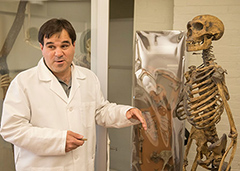
Terence D. Capellini, Richard B Wolf Associate Professor of Human Evolutionary Biology, empowers students to grow as researchers in his Building the Human Body course through a comprehensive, course-long collaborative project that works to understand the changes in the genome that make the human skeleton unique. For instance, of the many types of projects, some focus on the genetic basis of why human beings walk on two legs. This integrative “Evo-Devo” project demands high levels of understanding of biology and genetics that students gain in the first half of class, which is then applied hands-on in the second half of class. Students work in teams of 2-3 to collect their own morphology data by measuring skeletons at the Harvard Museum of Natural History and leverage statistics to understand patterns in their data. They then collect and analyze DNA sequences from humans and other animals to identify the DNA changes that may encode morphology. Throughout this course, students go from sometimes having “limited experience in genetics and/or morphology” to conducting their own independent research. This project culminates in a team presentation and a final research paper.
The benefits: Students develop the methodological skills required to collect and analyze morphological data. Using the UCSC Genome browser and other tools, students sharpen their analytical skills to visualize genomics data and pinpoint meaningful genetic changes. Conducting this work in teams means students develop collaborative skills that model academic biology labs outside class, and some student projects have contributed to published papers in the field. “Every year, I have one student, if not two, join my lab to work on projects developed from class to try to get them published.”
“The beauty of this class is that the students are asking a question that’s never been asked before and they’re actually collecting data to get at an answer.”
The challenges: Capellini observes that the most common challenge faced by students in the course is when “they have a really terrific question they want to explore, but the necessary background information is simply lacking. It is simply amazing how little we do know about human development, despite its hundreds of years of study.” Sometimes, for instance, students want to learn about the evolution, development, and genetics of a certain body part, but it is still somewhat a mystery to the field. In these cases, the teaching team (including co-instructor Dr. Neil Roach) tries to find datasets that are maximally relevant to the questions the students want to explore. Capellini also notes that the work in his class is demanding and hard, just by the nature of the work, but students “always step up and perform” and the teaching team does their best to “make it fun” and ensure they nurture students’ curiosities and questions.
Takeaways and best practices
- Incorporate previous students’ work into the course. Capellini intentionally discusses findings from previous student groups in lectures. “They’re developing real findings and we share that when we explain the project for the next groups.” Capellini also invites students to share their own progress and findings as part of class discussion, which helps them participate as independent researchers and receive feedback from their peers.
- Assign groups intentionally. Maintaining flexibility allows the teaching team to be more responsive to students’ various needs and interests. Capellini will often place graduate students by themselves to enhance their workload and give them training directly relevant to their future thesis work. Undergraduates are able to self-select into groups or can be assigned based on shared interests. “If two people are enthusiastic about examining the knee, for instance, we’ll match them together.”
- Consider using multiple types of assessments. Capellini notes that exams and quizzes are administered in the first half of the course and scaffolded so that students can practice the skills they need to successfully apply course material in the final project. “Lots of the initial examples are hypothetical,” he explains, even grounded in fiction and pop culture references, “but [students] have to eventually apply the skills they learned in addressing the hypothetical example to their own real example and the data they generate” for the Evo-Devo project. This is coupled with a paper and a presentation treated like a conference talk.
Bottom line: Capellini’s top advice for professors looking to help their own students grow as researchers is to ensure research projects are designed with intentionality and fully integrated into the syllabus. “You can’t simply tack it on at the end,” he underscores. “If you want this research project to be a substantive learning opportunity, it has to happen from Day 1.” That includes carving out time in class for students to work on it and make the connections they need to conduct research. “Listen to your students and learn about them personally” so you can tap into what they’re excited about. Have some fun in the course, and they’ll be motivated to do the work.

Tips for Online Students , Tips for Students
The Best Research Skills For Success

Every student is required to conduct research in their academic careers at one point or another. A good research paper not only requires a great deal of time, but it also requires complex skills. Research skills include the ability to organize, evaluate, locate, and extract relevant information.
Let’s learn how to develop great research skills for academic success.
What is Research?
We’ve all surely heard the term “research” endlessly. But do you really know what it means?
Research is a type of study that focuses on a specific problem and aims to solve it using scientific methods. Research is a highly systematic process that involves both describing, explaining, and predicting something.

Photo by Startup Stock Photos from Pexels
What are research skills.
Research skills are what helps us answer our most burning questions, and they are what assist us in our solving process from A to Z, including searching, finding, collecting, breaking down, and evaluating the relevant information to the phenomenon at hand.
Research is the basis of everything we know — and without it, we’re not sure where we would be today! For starters, without the internet and without cars, that’s for sure.
Why are Research Skills Important?
Research skills come in handy in pretty much everything we do, and especially so when it comes to the workforce. Employers will want to hire you and compensate you better if you demonstrate a knowledge of research skills that can benefit their company.
From knowing how to write reports, how to notice competition, develop new products, identify customer needs, constantly learn new technologies, and improve the company’s productivity, there’s no doubt that research skills are of utter importance. Research also can save a company a great deal of money by first assessing whether making an investment is really worthwhile for them.
How to Get Research Skills
Now that you’re fully convinced about the importance of research skills, you’re surely going to want to know how to get them. And you’ll be delighted to hear that it’s really not so complicated! There are plenty of simple methods out there to gain research skills such as the internet as the most obvious tool.
Gaining new research skills however is not limited to just the internet. There are tons of books, such as Lab Girl by Hope Jahren, journals, articles, studies, interviews and much, much more out there that can teach you how to best conduct your research.
Utilizing Research Skills
Now that you’ve got all the tools you need to get started, let’s utilize these research skills to the fullest. These skills can be used in more ways than you know. Your research skills can be shown off either in interviews that you’re conducting or even in front of the company you’re hoping to get hired at .
It’s also useful to add your list of research skills to your resume, especially if it’s a research-based job that requires skills such as collecting data or writing research-based reports. Many jobs require critical thinking as well as planning ahead.
Career Paths that Require Research Skills
If you’re wondering which jobs actually require these research skills, they are actually needed in a variety of industries. Some examples of the types of work that require a great deal of research skills include any position related to marketing, science , history, report writing, and even the food industry.

Photo by Abby Chung from Pexels
How students can improve research skills.
Perhaps you know what you have to do, but sometimes, knowing how to do it can be more of a challenge. So how can you as a student improve your research skills ?
1. Define your research according to the assignment
By defining your research and understanding how it relates to the specific field of study, it can give more context to the situation.
2. Break down the assignment
The most difficult part of the research process is actually just getting started. By breaking down your research into realistic and achievable parts, it can help you achieve your goals and stay systematic.
3. Evaluate your sources
While there are endless sources out there, it’s important to always evaluate your sources and make sure that they are reliable, based on a variety of factors such as their accuracy and if they are biased, especially if used for research purposes.
4. Avoid plagiarism
Plagiarism is a major issue when it comes to research, and is often misunderstood by students. IAs a student, it’s important that you understand what plagiarism really means, and if you are unclear, be sure to ask your teachers.
5. Consult and collaborate with a librarian
A librarian is always a good person to have around, especially when it comes to research. Most students don’t seek help from their school librarian, however, this person tends to be someone with a vast amount of knowledge when it comes to research skills and where to look for reliable sources.
6. Use library databases
There are tons of online library resources that don’t require approaching anyone. These databases are generally loaded with useful information that has something for every student’s specific needs.
7. Practice effective reading
It’s highly beneficial to practice effective reading, and there are no shortage of ways to do it. One effective way to improve your research skills it to ask yourself questions using a variety of perspectives, putting yourself in the mind of someone else and trying to see things from their point of view.
There are many critical reading strategies that can be useful, such as making summaries from annotations, and highlighting important passages.
Thesis definition
A thesis is a specific theory or statement that is to be either proved or maintained. Generally, the intentions of a thesis are stated, and then throughout, the conclusions are proven to the reader through research. A thesis is crucial for research because it is the basis of what we are trying to prove, and what guides us through our writing.
What Skills Do You Need To Be A Researcher?
One of the most important skills needed for research is independence, meaning that you are capable of managing your own work and time without someone looking over you.
Critical thinking, problem solving, taking initiative, and overall knowing how to work professionally in front of your peers are all crucial for effectively conducting research .
1. Fact check your sources
Knowing how to evaluate information in your sources and determine whether or not it’s accurate, valid or appropriate for the specific purpose is a first on the list of research skills.
2. Ask the right questions
Having the ability to ask the right questions will get you better search results and more specific answers to narrow down your research and make it more concise.
3. Dig deeper: Analyzing
Don’t just go for the first source you find that seems reliable. Always dig further to broaden your knowledge and make sure your research is as thorough as possible.
4. Give credit
Respect the rights of others and avoid plagiarizing by always properly citing your research sources.
5. Utilize tools
There are endless tools out there, such as useful websites, books, online videos, and even on-campus professionals such as librarians that can help. Use all the many social media networks out there to both gain and share more information for your research.
6. Summarizing
Summarizing plays a huge role in research, and once the data is collected, relevant information needs to be arranged accordingly. Otherwise it can be incredibly overwhelming.
7. Categorizing
Not only does information need to be summarized, but also arranged into categories that can help us organize our thoughts and break down our materials and sources of information.

Photo by Noelle Otto from Pexels
What are different types of research, 1. qualitative.
This type of research is exploratory research and its aim is to obtain a better understanding of reasons for things. Qualitative research helps form an idea without any specific fixed pattern. Some examples include face-to-face interviews or group discussions.
2. Quantitative
Quantitative research is based on numbers and statistics. This type of research uses data to prove facts, and is generally taken from a large group of people.
3. Analytical
Analytical research has to always be done from a neutral point of view, and the researcher is intended to break down all perspectives. This type of research involves collecting information from a wide variety of sources.
4. Persuasive
Persuasive research describes an issue from two different perspectives, going through both the pros and cons of both, and then aims to prove their preference towards one side by exploring a variety of logical facts.
5. Cause & Effect
In this type of research, the cause and effects are first presented, and then a conclusion is made. Cause and effect research is for those who are new in the field of research and is mostly conducted by high school or college students.
6. Experimental Research
Experimental research involves very specific steps that must be followed, starting by conducting an experiment. It is then followed by sharing an experience and providing data about it. This research is concluded with data in a highly detailed manner.
7. Survey Research
Survey research includes conducting a survey by asking participants specific questions, and then analyzing those findings. From that, researchers can then draw a conclusion.
8. Problem-Solution Research
Both students and scholars alike carry out this type of research, and it involves solving problems by analyzing the situation and finding the perfect solution to it.
What it Takes to Become a Researcher
- Critical thinking
Research is most valuable when something new is put on the table. Critical thinking is needed to bring something unique to our knowledge and conduct research successfully.
- Analytical thinking
Analytical thinking is one of the most important research skills and requires a great deal of practice. Such a skill can assist researchers in taking apart and understanding a large amount of important information in a short amount of time.
- Explanation skills
When it comes to research skills, it’s not just about finding information, but also about how you explain it. It’s more than just writing it out, but rather, knowing how to clearly and concisely explain your new ideas.
- Patience is key
Just like with anything in life, patience will always take you far. It might be difficult to come by, but by not rushing things and investing the time needed to conduct research properly, your work is bound for success.
- Time management
Time is the most important asset that we have, and it can never be returned back to us. By learning time management skills , we can utilize our time in the best way possible and make sure to always be productive in our research.
What You Need to Sharpen Your Research Skills
Research is one of the most important tasks that students are given in college, and in many cases, it’s almost half of the academic grade that one is given.
As we’ve seen, there are plenty of things that you’ll need to sharpen your research skills — which mainly include knowing how to choose reliable and relevant sources, and knowing how to take them and make it your own. It’s important to always ask the right questions and dig deeper to make sure that you understood the full picture.
Related Articles

- Cambridge Libraries
Study Skills
Research skills.
- Searching the literature
- Note making for dissertations
- Research Data Management
- Copyright and licenses
- Publishing in journals
- Publishing academic books
- Depositing your thesis
- Research metrics
- Build your online profile
- Finding support

Researchers interact with information every day. You might be looking for articles, evaluating sources, writing up work for publication or disseminating your work more widely. And of course the literature does not just consist of books or papers, there's also a lot of research data and grey literature that needs to be processed and distributed appropriately.
We're here to help you find your way in this landscape and make the most of your research opportunities. We have designed these online modules that you can take in your own time. Each one is packed with ideas and tips to help you succeed as a researcher at Cambridge.
Click on the titles on the left to access each module.
How did you find our Research Skills modules
We'd love to hear about your experience on this site to keep improving our offer and to compare it with face-to-face training. Please take the feedback survey , it should only take around 2 minutes to complete.
- Next: Searching the literature >>
- Last Updated: Sep 18, 2023 9:07 PM
- URL: https://libguides.cam.ac.uk/research-skills
© Cambridge University Libraries | Accessibility | Privacy policy | Log into LibApps
Graduate Research Hub
- Developing my skills
- Research skills
There are plenty of courses and opportunities available to support your research and give you the skills required to conduct research effectively. Developing these skills early is strongly recommended and highly beneficial, as they will set you up for a successful start to candidature.
Melbourne Centre for the Study of Higher Education
Find events and workshops to develop your academic teaching, engagement and leadership skills run by the Melbourne Centre for the Study of Higher Education.
Researcher Development Portal
The University of Melbourne offers a comprehensive suite of researcher professional development offerings for researchers at all stages. Use the Researcher Development Portal to explore upcoming events and resources to put you on the right path to completing your degree and prepare you for a job in any field.
Academic Skills
The Academic Skills Hub is where you will find opportunities and resources to develop your academic and writing skills .
Researcher@Library
The University Library offers high quality resources and services to support you through the complete research lifecycle and help maximise your research outcomes.
Effective Video Storytelling for Researchers
This workshop introduces key concepts for developing research narratives and understanding production principles to create engaging videos to reach your audience.
Graduate research orientation
Attend orientation day to be welcomed to our research community and learn about key services, support and development programs to help you succeed in your degree.
Research integrity training
Offers an interactive online approach to ethics and integrity issues in graduate research.
Book a Research Consultation
Consult a librarian for advice for your research project on topics such as advanced searching, referencing, scholarly publishing, or managing data. University of Melbourne log in required.
Managing Data @Melbourne
Do you have a research data management plan? This online program that has been developed for you. Its six short modules outline the fundamental practices of good data management and guide you to develop an online data management plan that you can share with your supervisors via a new online tool, DMP Melbourne.
Research Data Curation
Promotes ongoing, structured processes for capturing and providing stewardship for research data records.
Digital Stewardship Team
The digital stewardship team provides training, advice and examples of good practice in digital humanities, digital archiving and preservation and research data management.
Digital Skills Training
Take advantage of free workshops and community events to build your digital research skills including coding, 3D printing, managing image collections and visualising data sets.
Melbourne Coder Network
With an aim to bring together experienced coders and researchers, Melbourne Data Analytics Platform is pleased to announce the launch of the Melbourne Coder Network web app. Designed to be an online meeting place, we hope to facilitate the ways we can better work together to solve challenging coding issues. If you are a coder, or a researcher in need of some coding, please sign in with your University of Melbourne credentials, create a profile, and start to work in the digital community.
Melbourne Statistical Consulting Centre
Take advantage of free advice to improve your knowledge of statistical methods when planning your research project.
Which reference manager?
Read this guide to decide which reference management tool is best for you.
Research profiles and research impact
Learn how to build your online presence, increase the visibility of your research publications and measure the impact of your research.
Scholarly Publishing
This guide highlights the issues to consider, and tools and resources to help you, when you are ready to publish your research.
Research Gateway
Visit the Research gateway for research resources available to you in the University, FAQs and the research helpline.
Research Data Management System Finder
The Finder helps you choose between the University’s recommended research data storage and management systems. Use it to filter, select and compare the services you want to learn more about.
- Resources for candidates
- Orientation and induction
- Mapping my degree
- Principles for infrastructure support
- Peer activities
- Change my commencement date
- Meeting expectations
- Working with my supervisors
- Responsible Research & Research Integrity
- Guidelines for external supervisors
- Pre-confirmation
- Confirmation
- At risk of unsatisfactory progress
- Unsatisfactory progress
- Add or drop coursework subjects
- Apply for leave
- Return from leave
- Apply for Study Away
- Return from Study Away
- Change my study rate
- Check my candidature status
- Change my current supervisors
- Request an evidence of enrolment or evidence of qualification statement
- Change my project details
- Change department
- Transfer to another graduate research degree
- Late submission
- Withdraw from my research degree
- Check the status of a request
- Re-enrolment
- Advice on requesting changes
- Extension of candidature
- Lapse candidature
- How to cancel a form in my.unimelb
- Resolving issues
- Taking leave
- About Study Away
- Finishing on time
- Accepting an offer for a joint PhD online
- Tenured Study Spaces (TSS) Usage Guidelines
- Tenured Study Spaces Procedures
- Academic writing and communication skills
- Building professional and academic networks
- Research internships
- Commercialising my research
- Supplementary PhD Programs
- Writing my thesis
- Examples of thesis and chapter formats when including publications
- Thesis with creative works
- Research Integrity in my Thesis
- Graduate researchers and digital assistance tools
- TES Statuses
- Submitting my thesis
- Depositing multiple components for your final thesis record
- The Chancellor's Prize
- TES Graduate Researcher FAQs
- Career planning
- Publishing my research
- Getting support
- Key graduate research contacts
- Graduate research advice for returning to campus
- Melbourne Research Experience Survey
- Quality Indicators for Learning and Teaching (QILT)
- Current Students
The Essex website uses cookies. By continuing to browse the site you are consenting to their use. Please visit our cookie policy to find out which cookies we use and why. View cookie policy.
Research skills
Research allows you to discover new ideas and expand your understanding of different subject areas. It's about asking questions and finding answers, and it will form an essential part of your education, especially as you advance through university.
Workshops and events
A range of bookable workshops are also available and can be booked through CareerHub . Workshops that target your research skills include Finding Resources, Evaluating Resources and more.
- Full list of workshops
- How to write a research project
This booklet is a guide to some of the most important aspects of research projects. Whether the project is as small as a research paper or as big as your final dissertation, the techniques covered will give you the background you need.
- Search Skills guide
Whether you're starting out on your first assignment or conducting advanced research, Search skills Guide will help you to find good quality information for you to use in your assignments and research and will make your searches much more focused and efficient.
For more information, see our referencing guides which outline the main styles used by departments at our University.
Moodle courses
- Research: asking questions and finding answers
- Why reading is so important?
- How to ask the right questions
Essex Student Journal
The Essex Student Journal is an online academic journal run by and for Essex students. The journal helps students develop their writing, feedback, and research skills by introducing them to the publishing world in a supportive environment. The Essex Student Journal is a multi-disciplinary journal dedicated to the publication of high-quality undergraduate- and Masters-level writing, with a commitment to creating accessible and engaging content for a non-specialist readership.
Find more information about the Journal , including how to submit as an author and sign-up as a peer reviewer.

If you need any further help and advice, please contact or visit the Student Services Hub who will be happy to assist you.
- For enquiries contact your Student Services Hub
- University of Essex
- Wivenhoe Park
- Colchester CO4 3SQ
- Accessibility
- Privacy and Cookie Policy
Research Skills Tutorials
The Research Skills tutorials are a set of 9 modules that provide a foundation of information literacy and critical thinking skills. Topics range from getting started with research, to evaluating and critiquing information sources, to citations.
The modules are listed in a suggested order of completion, but users may complete any part of any module. If you are off-campus, you will need your PODS login to access the tutorials.
Faculty Information Interested faculty can integrate these tutorial content and quizzes into myCourses (Brightspace) to connect student progress or performance to the Grade Center. See the directions and links for integration for more information.
Contact For questions about the tutorials, contact Aleshia Huber, [email protected] .
Getting Started with Research
- Tutorial: Why Information Literacy Matters
- Video: Life in the Information Age
- Videos: Research Process
- Tutorial: Developing a Research Focus
- Video: How to Narrow Your Topic
- Background Research Tips
- Videos: Beginning Research with Wikipedia/Google
- Video: Thesis Statements
- Quiz: Thesis Statements
- Tutorial: Scholarship as Conversation
- Quiz: The Research Process
- Tutorial: Research for Persuative Writing
- Video: Creating a Research Plan
- Video: Framing a Problem
- Quiz: Research Strategies
Sources of Information
- Video: Data, Information, and Knowledge
- Video: Primary and Secondary Research
- Tutorial: Primary, Secondary, and Tertiary Sources
- Quiz: Primary and Secondary Sources
- Video: Peer Review
- Quiz: Peer Review
- Video: Types of Sources
- Tutorial: Source Types
- Quiz: Types of Sources
- Tutorial: How To Read Scholarly Materials
- Video: How to Read Scholarly Materials
Searching for Information
- Videos: Searching as Exploration
- Video: Choosing a Database
- Quiz: Choosing a Database
- Tutorial: Choosing and Using Keywords
- Quiz: Choosing and Using Keywords
- Tutorial: Search Techniques, Part 1
- Tutorial: Search Techniques, Part 2
- Video: Refining Search Results
- Quiz: Search Techniques
Evaluating Information
- Video: What is Authority?
- Video: Introduction to Bias
- Video: Types of Bias
- Video: Evaluating Sources
- Tutorial: Evaluating Information
- Tutorial: Choosing the Best Web Source
- Video: Handling Misinformation
- Quiz: Misinformation
- Quiz: Evaluating Information
- Tutorial: News Reporting vs. Opinion Pieces in Journalism
- Tutorial: Evaluating Digital Sources Using Lateral Reading
Presenting Research and Data
- Video: Synthesizing Information
- Tutorial: Synthesizing Information for Academic Writing
- Quiz: Synthesizing Information
- Tutorial: Annotated Bibliography
- Video: Anatomy of a Research Paper
- Quiz: Anatomy of a Research Paper
- Video: Writing Help
- Tutorial: Digital Privacy
- Tutorial:Parapharsing, Quoting, and Summarizing
- Video:Academic Writing
- Video:Understanding Communication Need
- Tutorial: Presentation Skills
- Quiz: Writing and Communication
- Video: Why Citations Matter
- Tutorial: Why Citations Matter
- Video: APA 6th Edition Citation Style
- Tutorial: APA 6th Edition Citations
- Quiz: APA 6th Edition Citations
- Tutorial: APA 7th Edition Citations
- Quiz: APA 7th Edition Citations
- Video: MLA 7th Edition Citation Style
- Video: MLA 8th Edition Citation Style
- Tutorial: MLA 8th Edition Citation Style
- Quiz: MLA 8th Edition Citation
- Tutorial: MLA 9th Edition Citation
- Video: MLA 9th Edition Citation
- Quiz: MLA 9th Edition Citation
- Video: Turabian Citation Style 9th Ed.
- Quiz: Turabian Citation Style 9th Ed.
- Video: Harvard Citation Style
- Video: Chicago Style 17th ed. Journals
- Video: Chicago Style, 17th ed. Books and eBooks
- Video: Chicago Style, 17th ed. Websites and Social Media
- Quiz: Chicago Style 17th Edition
Information Ethics and Academic Integrity
- Tutorial: Academic Integrity
- Tutorial: Information Has Value
- Tutorial: Copyright
- Video: Plagiarism
- Quiz: Information Ethics
Visual and Quantitative Literacy
- Video: Searching for Images
- Video: Interpreting Images
- Tutorial: Why Does Visual Literacy Matter?
- Quiz: Visual Literacy
- Video: Using Quantitiative Data
- Video: Evaluating Statistics
- Quiz: Quantiative Reasoning
Using Critical Thinking and Logic
- Video: Why Thinking Matters
- Video: Inquiry
- Tutorial: Logical Reasoning
- Video: Evidence-Based Reasoning
- Tutorial: Analyzing Information
Culture and Citizenship
- Video: Introduction to Cultural Issues
- Video: Global Citizenship
- Video: Introduction to Civic Engagement
- Video: Introduction to Civic Action
- Quiz: Culture and Citizenship
- Quiz: Civic Engagement and Civic Action
- Tutorial: Introduction to Digital Citizenship
- Tutorial: Digital Citizenship in Practice
- Quiz: Digital Citizenship in Practice
- Share on Facebook
- Share on Twitter
- Share on Pinterest
- Share on LinkedIn
- Share by Email
Last Updated: 5/22/23
- Undergraduate Courses
- Postgraduate Taught Courses
- Professional, Part-time and Evening Courses
- PhDs and Research Masters
- Online Courses
- Micro-credentials
- How to Apply
- Fees & Funding
- Modes of Study
- Scholarships

Choosing a course is one of the most important decisions you'll ever make! View our courses and see what our students and lecturers have to say about the courses you are interested in at the links below.
View Courses
- Accommodation Advisory Service
- Campus Activities
- Student Support
- Study Abroad
- International Office
- Mature Students
- Students with Disabilities
- Student Ambassador Programme
- For Parents and Guardians
- Access Student Information
- Life in Galway

University Life
Each year more than 4,000 choose University of Galway as their University of choice. Find out what life at University of Galway is all about here.
Read about life at University of Galway
- News & Events
- Strategy 2020-2025
- Cois Coiribe (Publication)
- University Leadership
- Sustainability - National SDG Champion

About University of Galway
Since 1845, University of Galway has been sharing the highest quality teaching and research with Ireland and the world. Find out what makes our University so special – from our distinguished history to the latest news and campus developments.
About University of Galway
- Adult Learning and Professional Development
- College of Arts, Social Sciences, & Celtic Studies
- College of Business, Public Policy and Law
- College of Medicine, Nursing & Health Sciences
- College of Science and Engineering

Colleges & Schools
University of Galway has earned international recognition as a research-led university with a commitment to top quality teaching across a range of key areas of expertise.
Colleges and Schools
- Research Areas
- Research Office
- Innovation Office
- Researcher Development Centre
- Research Community Portal
- Research centres, institutes, and units

Research & Innovation
University of Galway’s vibrant research community take on some of the most pressing challenges of our times.
- Career Development Centre (for Employers)
- Business Innovation Centre
- Conference & Event Centre


Guiding Breakthrough Research at University of Galway
We explore and facilitate commercial opportunities for the research community at University of Galway, as well as facilitating industry partnership.
- Latest News
- Alumni Services
- Cois Coiribe
- Alumni Awards
- Follow our Social Channels
- Update Your Details
- Upcoming Alumni Events
- Previous Alumni Events

Alumni & Friends
There are 128,000 University of Galway alumni worldwide. Stay connected to your alumni community! Join our social networks and update your details online.
- About Engagement
- Learning with Community
- Community Partnerships
- Research with Communities
- University of Sanctuary

Community Engagement
At University of Galway, we believe that the best learning takes place when you apply what you learn in a real world context. That's why many of our courses include work placements or community projects.
Real Learning
Gateway Pages
- Prospective Students
- Current Students
- Ollscoil na Gaillimhe
- A High Contrast
- Registration
- Office 365 (Email)
- Student Registry Helpdesk
- Fees & Grants
- Exam Timetables
- Academic Skills Hub
- Student Services
- Student Volunteering
- Students' Union
- Financial System (Agresso)
- Academic Records
- Human Resources
- Academic Terms Dates
- Information Solutions & Services (IT Services)
- Buildings & Estates
- Service Desk
- Colleges & Schools
Reading and Research Skills
- Getting Started
- Getting Organised
- Communication Skills
- IT and Digital Skills
- Reading and Note-Making
- Getting to Know Your Library
Research Strategies
Research ethics and academic integrity.
- Critical Thinking
- Maths and Academic Writing
- Assignments and Exams
- Galway Exams 101
We are all researchers! Booking a bus journey or flight, choosing a university course, trying to find the perfect coffee or ice-cream cone – these are all examples of research in everyday life.
Research skills refer to the ability to search for, locate, extract, organise, evaluate and use or present information that is relevant to a particular topic. Academic research is a specific type of research: a process of detailed and methodical investigation into some area of study. It involves intensive search, investigation, and critical analysis, usually in response to a specific research question or hypothesis. It also usually involves a lot of reading.
Here are some examples of research questions:
- What are the costs and benefits of water charges?
- Does smoking cause lung cancer?
- Are gender roles a product of nature or nurture?
- Will genetic engineering ever make it possible for humans to grow new organs?
The point of all academic research is to be able to say something with authority about the subject in question. Most of your lecturers are also researchers who specialise in particular fields. Advanced academic research aims to contribute something new to the subject area, but at undergraduate level, you are usually expected to begin by researching other people’s ideas and contributions, mostly through reading.
Click on the boxes below to find out more about reading and research at university.

Reading & Note Making
Get to grips with academic reading. Create useful notes.
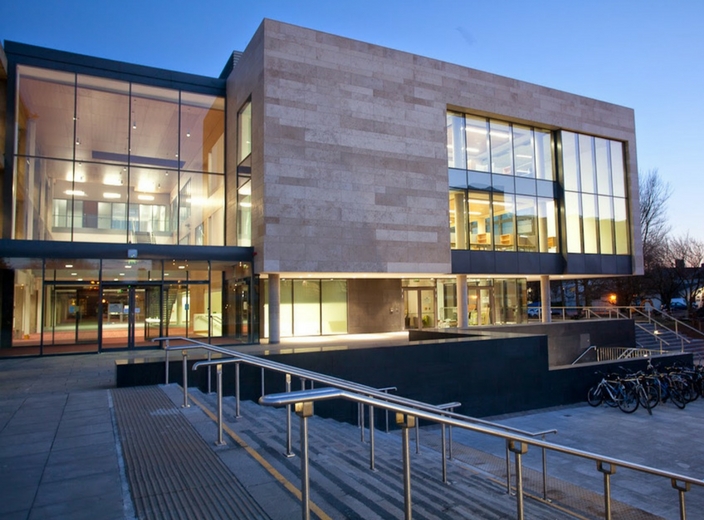
James Hardiman Library
Get to know your library.

Tips for research success.

Key principles of academic integrity
- Library Resources
Supported by the Student Project Fund
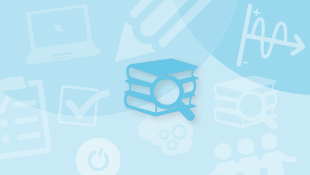
Academic reading PDF (124 KB)

Note-making PDF (905 KB)
Manage Cookies
Some features need cookies to work properly. Cookies also let us (a) remember your preferences, (b) collect anonymous usage statistics, and (c) see how well our online ads are working.
No personal data is stored on these cookies but, under EU law, we still need to ask you this every 6 months. To learn more about our use of cookies, view our Privacy Policy .
Founded in 1845, we've been inspiring students for over 175 years. University of Galway has earned international recognition as a research-led university with a commitment to top quality teaching.

University of Galway, University Road, Galway, Ireland H91 TK33 T. +353 91 524411
Get Directions Send Us an Email
Twitter Instagram Facebook YouTube LinkedIn RSS

© 2023 University of Galway. All Rights Reserved. Server AWS University of Galway is a registered charity. RCN 20002107
- Privacy & Cookies
- Contact & Enquiries
- Accessibility

Skills for Learning : Research Skills
Research is the collection of data with the aim of gathering information on a particular topic. Research helps us to make sense of the world. It informs our actions and decision making. There are several stages involved in the research process: conceptualisation; contextualisation; research design; data collection or generation; data analysis; and reporting.
We run interactive workshops to help you develop skills related to doing research, such as data analysis, writing literature reviews and preparing for dissertations. Find out more on the Skills for Learning Workshops page.
We have online academic skills modules within MyBeckett for all levels of university study. These modules will help your academic development and support your success at LBU. You can work through the modules at your own pace, revisiting them as required. Find out more from our FAQ What academic skills modules are available?
The purposes of research
All research is carried out with a specific purpose. This purpose will influence how the research is approached.
Research can be:
- Exploratory
- Speculative
- Descriptive
- Explanatory
Investigates an area or issue where little previous work has been carried out. In an organisational setting, it may be used to discover whether or not a problem exists. An example would be an investigation of customers’ perceptions of products/services.
Examines current situations and speculates about their future implications. For example, the introduction of a government policy might have implications for those who implement it. Research can be used to investigate these implications and develop future approaches to these issues.
Aims to gather information on relationships, patterns and links between variables. An example would be research on the link between students' study skills and course drop-out rates.
Investigates why relationships, patterns and links occur. For instance, it might ask how study skills support can improve student retention. It may also look at other relevant factors (such as the types of study skills support available).
Develops a model to predict the likely course of events given particular variables or circumstances. This can be used, for example, to predict customers’ buying behaviour in retail.
Evaluates the impact of something – e.g. a new policy, event, law, treatment regime or system. For example, an evaluation of the impact of the Olympic Games on host nations.
Information timelines
We all use information, but where does this information come from? Who writes it? What happens to it next? When do you get to see it? The following timelines show how information becomes an established part of the literature on a topic.
- Stage 1: Ongoing research
- Stage 2: Year 1
- Stage 3: Years 2-3
- Stage 4: Years 3+
Research usually takes place in a university, in industry or in an organisation. It can be difficult to find out about ongoing research. However, sources like working papers and online blogs may provide some insight. In addition, funding organisations (e.g. ESRC, AHRC) may provide details of ongoing projects.
Once research has been completed, researchers usually want to publish their results; an exception to this might be commercially sensitive research. A common outlet for new ideas is to present a conference paper. Conference papers can be gathered together and published as 'conference proceedings'. Other publication outlets for researchers include magazines and academic journals. Researchers are most likely to want to publish in a 'peer reviewed' journal, where articles will need to be approved by a number of other academics or researchers.
Two to three years after publication, the research is now well known. Other authors may begin referring to papers on the research in their own work. 'Review' articles on related topics may also refer to the research.
If the research is sufficiently important or innovative, the ideas may be appearing in textbooks by now. These processes help the information to become more widespread.
Not all research will go through all these stages. Some research is never published or reviewed.
Stages in the research process
A research project can be planned as a step-by-step process. Many researchers, however, would describe research as a cycle of activity. You revisit various stages and activities as the work progresses.
The nature of the research process can mean changing your plans as you progress. You may even need to go back to redo some of the work. For example, you might have problems with gathering data, meaning that you have to modify your previously specified aims. Be prepared to be flexible and adaptable during the research process.
Search Discover to find books and other resources in Leeds Beckett Library about planning a research project.
A suggested step-by-step process can be found below:
- Step 1: Conceptualisation
- Step 2: Contextualisation
- Step 3: Research design
- Step 4: Data collection or generation
- Step 5: Data analysis
- Step 6: Reporting
Deciding on the research question(s) or hypotheses, describing the aims of the project, identifying how to collect or generate the data.
Placing the research within the context of similar research by others. You will need to complete a detailed literature search .
Deciding the structure/design for the chosen topic(s).
Search Discover to find books and other resources in Leeds Beckett library about research methods.
Using the chosen research method(s) to gather or generate data on the chosen topic(s).
Analysing the data, considering the results and drawing conclusions.
Writing up the dissertation, thesis or report, and distributing the final piece.
Skills for Learning home
- Academic Integrity Module in MyBeckett
- Assignment Calculator
- Building on Feedback
- Disability Advice
- Essay X-ray tool
- International Students' Academic Introduction
- Manchester Academic Phrasebank
- Quote, Unquote
- Skills and Subject Suppor t
- Turnitin Grammar Checker
{{You can add more boxes below for links specific to this page [this note will not appear on user pages] }}
- Research Methods Checklist
- Sampling Checklist
Skills for Learning FAQs
Researcher support.
- Library Research Support
- Postgraduate Research Support FAQs
- Student Wellbeing Team
- LBSU Mental Health Support

0113 812 1000
- University Disclaimer
- Accessibility
Research skills
As a student here, you'll be expected to find information to support your studies.
Developing good information skills will help you do well in your course, as you'll be marked on the appropriateness of the information you choose.
To find good quality information, you'll need to know:
- what to search for
- where to search
- which types of information to choose
- how to judge the quality of the information you find
Read through these pages for some top tips and guidance on key areas, including reading lists, essay questions and bibliographies.
Researching your assignment
The following tools may be useful when undertaking your own research:
- Read through all the ways to find information
- Read through our pages on referencing
- Find the best resources for your subject with our Library Guides
Preparing your dissertation
For advice and guidance on preparing your dissertation, read the online resource: Dissertation research .
Using Library Search
Library Search is your key research tool to find what the library holds or subscribes to.
Read our guide to using Library Search .
We also recommend that you watch the following videos:
- Watch the Introduction to Library Search: how to find a book
- Watch the Introduction to Library Search: how to find journal articles
How to find help
For help with researching and referencing your assignments you can book an appointment with your Academic Liaison Librarian. Find the Academic Liaison Librarian for your subject on our Library Guides website .
For help with academic writing you can book an appointment with a Learning Adviser. To book an appointment please visit Engage .
Related pages
Referencing your work.
Read more about the University referencing systems and how to use them.
Finding information
Find out more about how you can use books, journals, websites, newspapers and other resources as part of your work.
Academic skills workshops
Our workshops cover a range of skills. Find out who can attend, when they take place and how to book places.
We use cookies to ensure the best experience on our website.
By accepting you agree to cookies being stored on your device.
Some of these cookies are essential to the running of the site, while others help us to improve your experience.
Functional cookies enable core functionality such as security, network management, and accessibility.
Analytics cookies help us improve our website based on user needs by collecting information, which does not directly identify anyone.
Marketing cookies send information on your visit to third parties so that they can make their advertising more relevant to you when you visit other websites.

University Library
Robert S. Swanson Library and Learning Center

Teaching Research at UW-Stout: RESEARCH SKILLS DEVELOPMENT (RSD) FRAMEWORK
- RESEARCH SKILLS DEVELOPMENT (RSD) FRAMEWORK
- INFORMATION LITERACY This link opens in a new window
Nakatani Teaching and Learning Center
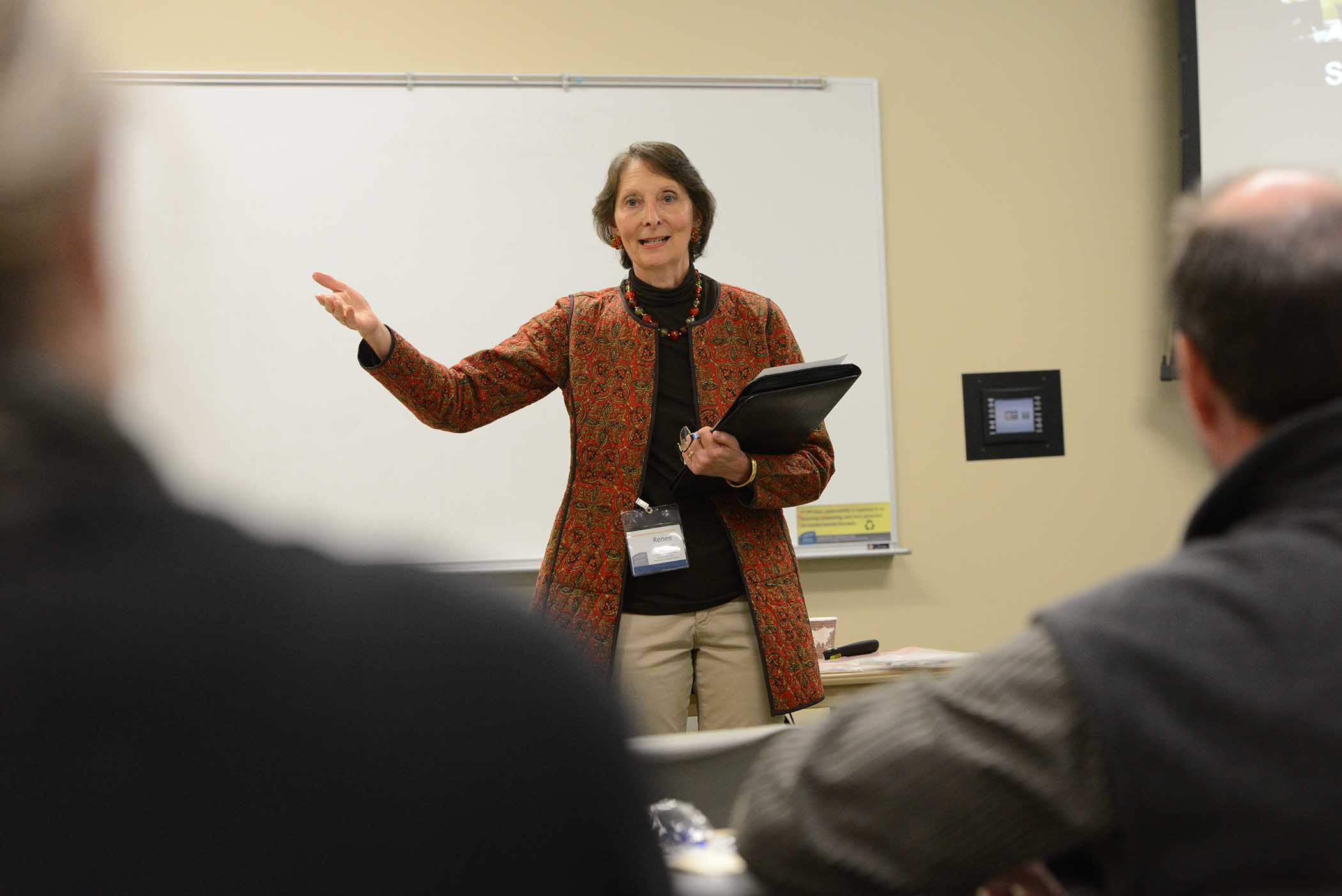
The Nakatani Teaching and Learning Center (NTLC) supports teaching, learning and SoTL research at UW-STout. NTLC facilitates conversations, coordinates events, training and offers stipends for instructors.
The Community of Practice (CoP) program is a voluntary, year-long program focusing on a chosen topic or issue about enhancing teaching and learning. Guidance for studying a topic is provided with participants meeting on a regular basis conducting research, analyzing results, and disseminating their findings. A financial incentive is provided to instructors who complete the program.
Teaching Research at UW-Stout
Introduction to the research skills development (rsd) framework.
The Research Skills Development (RSD) Framework, initiated by John Willison and Kerry O'Regan (Adelaide, AU), is a tool used to analyze and plan curriculum for the systematic development of students' research skills. The framework is descriptive, scalable, and useful for assignment, course or program planning purposes.
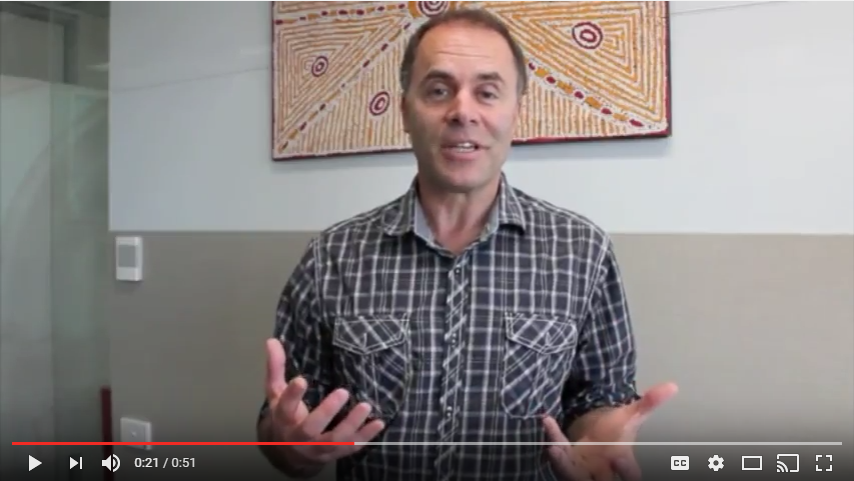
- Articles Related to RSD Includes the originating article (Willison & O'Regan, 2007), RSD applications, other undergraduate research frameworks, and papers critiquing RSD.
- Examples of RSD Applications Examples of the RSD applied organized by discipline, task type and other.
John Willison and Dorothy Missingham (University of Adelaide, AU) spoke at the Student Research Skills Symposium (UW-Stout, Dec 2015).
Research Skills Classroom Activities
2014-2015 ntlc cop cohort.
- Final Reports
- Classroom Resources
- Application to Create RSD CoP, Group
- RSD at UW-Stout CoP Handbook 2014 -'15 Handbook outlining the impetus, expectations and schedule of meetings and tasks for the cohort.
- Invitation to Join CoP
- Application to Join RSD CoP, Individual
- Invitation to Read CoP Blog, Email
- Stages of Concern for RSD CoP The Stages of Concern Survey was used to assess the Community of Practice.
- "Key Lessons from Our Experiences Co-Facilitating the RSD CoP" Submitted by facilitators Sylvia Tiala, Kitrina Carlson, and Anne Kerber.
Willison Workshop | July 2, 2014 | UW-Stout
- Workshop Agenda
OPID Conference Presentation | April 16-17, 2015 | Green Lake, WI
- OPID 2015 Conference Information
- OPID 2015 Conference Presentation Proposal
RSD Spring Workshop | May 26, 2015 | UW-Stout
- Workshop Agenda (Planning Document)
- Edenborg Final Report, Part 1
- Kerber Final Report
- Navarre Final Report
- Polzer Final Report
- Tiala Final Report 2015
- Wilson Final Report
- Zagorski Final Report 2015
2015-2016 NTLC CoP Cohort
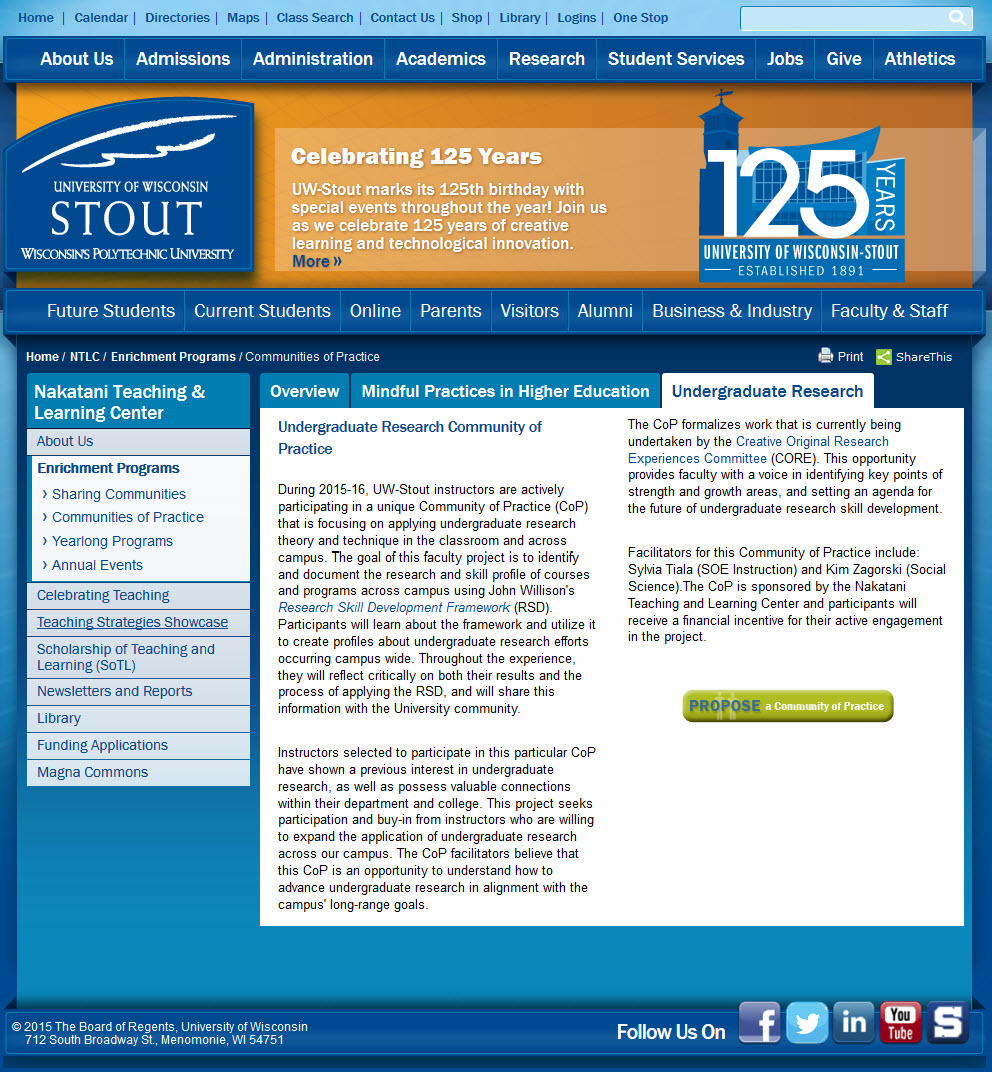
- RSD at UW-Stout CoP Handbook 2015 -'16
- UW-System Undergraduate and Discovery Grant Application The 2015 -'16 Undergraduate Research CoP was funded by the UW-System Undergraduate and Discovery Grant.
- UW-System Undergraduate Research and Discovery Grant Award Letter
- Application to Join RSD CoP-Advanced, Individual
RSD Workshop and CoP Kickoff | August 25, 2015 | UW-Stout
- Workshop & Community of Practice Kickoff Announcement
Student Research Skills Symposium | December 3-4, 2015 | UW-Stout
- Symposium Announcement
- Symposium Summary and Documents
- Aschenbrener Final Report
- Aschenbremer Report Addendum: Survey Tool
- Edenborg Final Report, Part 2
- Kotenko Final Report
- Kotenko Report Addendum: Survey Tool
- Olson Final Report
- Olson Report Addendum: Assignment Prompt
- Tiala Final Report 2016
- Zagorski Final Report 2016
- << Previous: Teaching Research
- Next: INFORMATION LITERACY >>
- Last Updated: Aug 10, 2023 3:07 PM
- URL: https://library.uwstout.edu/teachingresearch

- Careers Service
- Which career
- Jobs / experience
- Applications / interviews
- International
- CareerConnect
- My Skills Development
- Adaptability and flexibility
- Agile Learning
- Analytical skills
- Commercial awareness
- Communication skills
- Decision making
- Digital skills
- Emotional Intelligence
- Enterprise and self-employment
- Negotiation
- Numeracy skills
- Organisation
- Professionalism
- Problem solving
- Research and Critical Thinking
- Social responsibility
- Time management
- Online training resources
Research and critical thinking
Research and critical thinking skills combine the abilities to identify credible data sources, gather and evaluate information, often following a clear methodology and based upon agreed objectives, analysing results and presenting an argument and insights based on this analysis.
Activities where you could develop research and critical thinking skills
A defining part of any degree at the University of Manchester is that it develops your research and critical thinking skills but you can’t assume that employers will take that for granted. You need to be able to articulate how you applied these skills.
Most academic programmes will involve a formal research project or dissertation but the way you approach this is at least as important as the subject content, to a non-academic employer. They are probably more interested in you explaining how you determined which sources were credible, why you chose one methodology over another, what setbacks you had to overcome, rather than a detailed description of the content of your final report. Reflecting on your experience will help you make the most of your research.
In addition, the following activities, which may be undertaken as part of or alongside your studies, can be good ways to develop your research skills:
- My Learning Essentials workshops and resources
- Manchester Leadership Programme This academic module is open to most undergraduate students at Manchester.
- Volunteering There may be opportunities to complete research projects for voluntary organisations.
- Some academic programmes include an opportunity to complete a team project for an organisation or individual.
- Researching employers and jobs Research is important beyond your academic subject - find out how to research and critically evaluate employers and jobs. This will help you present your "argument" for why you want the job.
How is Research and Critical Thinking assessed in recruitment?
Application form and interview questions
Some examples of application form and interview questions which are designed to test research skills:
- Give me an example of when you have had to research a new topic. How did you approach this, and what obstacles did you need to overcome?
- How have research methods changed in the light of technical innovations?
- Tell me what you know about our organisation and our key competitors?
- What is the key to effective research?
- How would you research the potential to develop new customers for our products?
Note: For those whose practical research activities have been affected by the pandemic, you could alternatively use examples where you have completed a literature review (eg comparing and evaluating research methods for a particular topic) or analysed data sets which have been generated by other researchers.
If you are unsure how to structure an answer for either application or interview questions, visit the application and interviews section of our website and find out about the CAR (context, action, result) and STAR (situation, task, action, result) models. Our recommendations are based on feedback from employers.
Assessment Centres
- You may be asked to prepare a presentation on a recent research project for a research role. It is important to clarify if this will be presented to a subject expert or needs to be intelligible to a non-specialist.
- For some fast-paced marketing or sales roles, employers may ask you to carry out research during the assessment day eg on competitors or customers, and present your results with recommendations.

Skills in action
See Lauren and Sofia's stories for examples of how recent graduates developed research and critical thinking skills at The University of Manchester and applied them to graduate work.
- Alumni Skills: Lauren
- Alumni Skills: Sofia
Further information
- How to research employers & jobs
- Getting in touch
Careers Service, The University of Manchester
Connect with us
- Copyright notice
- Accessibility
- Freedom of information
- Charitable status
- Royal charter number: RC000797
- KU Libraries
- Subject & Course Guides
- College Readiness Skills and Resources
Research Skills
College readiness skills and resources: research skills.
- Writing Skills
- Scholarly Journals
- Primary vs. Secondary Sources
- Additional Resources
- Evaluating Websites
- Time Management & Study Skills
- College Planning
- Teacher & Librarian Resources
Well-developed RESEARCH SKILLS are at the core of good research. Using effective search strategies is vital to finding relevant sources. Selecting appropriate KEYWORDS and using BOOLEAN SEARCHES will greatly improve the quality and focus of your search results, especially while using DATABASES .
This page provides links to handouts, resources and tutorials focused on RESEARCH SKILLS, including the research process, developing search strategies, and keyword and Boolean searching.
- What is Boolean searching?
- Search Strategies
Begin your research with great keywords - Worksheet
- WORKSHEET - Choosing a Topic & Keywords Complete this worksheet to guide you to a working set of keywords and keyword phrases for your research.
Effective Keyword Searching
- Keywords Worksheet Loyola Marymount University
- Search Strategies Tutorial (Univ. of Kansas)
- Keyword Search Techniques (Trent University)
- Developing Effective Search Strategies (Penn State)
- KU Libraries - Effective Searching (KU Libraries)
Research help can lead to better grades

https://images.app.goo.gl/pTcBmKv3X1R974o39
Research & Writing Guides from OnlineColleges.net
- Academic Research Online This guide provides the steps needed to find the right information you need for academic research. (OnlineColleges.net)
- College Writing Guide Use this guide to refresh your knowledge of basic grammar rules, and to understand what you need to know and apply in your college classes. This resource can also serve as a reference as you complete your first written assignments. (OnlineColleges.net)
- Plagiarism: Avoid the Consequences Student’s guide on avoiding plagiarism. (OnlineColleges.net)
Combining Search Terms - Boolean Searches
Boolean Searches
- Additional Boolean Searching tutorial (Duquesne Univ. - Gumberg Library)
Research Skills - Link to additional resource page
See additional page in this guide related to Databases .
- Kansas State Library resources
- << Previous: Writing Skills
- Next: Databases >>
- Last Updated: Aug 30, 2023 11:04 AM
- URL: https://guides.lib.ku.edu/collegereadiness
- No idea what to do?
- Career path test
- Salary calculator
- Career path guides
- Top graduate employers
- Career profiles
- Further study
- A day in their life
- Find an internship
- Vacation schemes
- Deadline Tracker
- Internship Experience UK
- Find a graduate job
- Find an industrial placement
- STEM advice
- Aptitude & numerical tests
- Assessment centres
- Commercial awareness
- Core career skills
- Entering the world of work
- Bright Network events
- Employer events
- Previous event highlights
- Success stories
- For employers
- Graduate career advice
- Key graduate career skills
Research skills: Examples + how to improve them
No matter what career path you choose to take, research skills are one of the key graduate career skills that will help you impress employers in applications and support you throughout your entire working life.
Research skills are essential in problem-solving; learning how to improve research skills is therefore a great way to prepare for the workplace and improve your overall skill set in your early career. In this article, you’ll find out what research skills are, how to improve your research skills and much more.
- What are research skills?
- Examples of research skills
- Jobs that require research skills
- How to improve research skills
How to use research skills at your workplace
How to include research skills in a cv, how to include research skills in a cover letter.
- How to demonstrate your research skills at a job interview
Becoming a Bright Network member is free and easy - sign up to get exclusive access to jobs, events, networking opportunities, advice and more.
What are research skills?
Research skills refer to an individual’s ability to source information about a certain topic, and effectively extract and evaluate the information in order to answer questions or solve problems.
Research skills are soft skills that are highly sought after by employers as they show a candidate’s ability to understand and analyse a variety of materials and sources. Whether you’re studying or already in the workplace, research skills are important transferable skills to have in any role or sector that you choose.
These skills can be constantly improved, and this is a great way to develop in your early career and prepare for the workplace. For example, your manager might ask you to conduct research or analysis for various projects, where these skills will be essential for your success.
Learn how to develop your entire transferable skillset with this free online learning course. You'll also get a certificate once you complete the course that you can display on your CV and LinkedIn profile.
Examples of research skills
During your time at school and university, you will have used a variety of research skills to complete projects and assignments. If you’re not sure what research skills look like in practice, here are some examples:
Data collection
Data collection is the process of systematically gathering information in order to solve problems, answer questions and better understand a particular topic. The information or data that you are collecting can be quantitative or qualitative; it can be collected through using surveys, interviews, reviewing existing materials and more to solve a particular problem.
At university, you would need to read broadly on a certain topic or conduct a literature review for a certain project. This is all data collection, and you can develop and use these experiences in your future role too.
Critical thinking
Critical thinking is the ability to interpret and analyse information in order to form a particular judgement or evaluation. Someone who is a great critical thinker will be able to apply their knowledge (informed by evidence from, for example, data collection) to think rationally and come to a conclusion. Critical thinking is key in the workplace as it means you can analyse and evaluate strategically, to come to a judgement that will inform a particular action or idea.
Detail orientation
Another key example of a research skill is detail orientation, or the ability to focus on small details. Someone who is detail-oriented will be able to notice small mistakes and will be able to deliver high-quality and accurate work. When solving problems, this is essential, as the ability to extract and evaluate information with accuracy is important for the validity of your research and will help drive high-quality results.
Time management
Time management is the ability to organise your time when planning different activities and projects. Effective time management means you’re able to balance your workload and ensure all tasks are completed within an allotted time. This is important for your research skills, as it means you are able to effectively delegate your time between data collection, analysis and evaluation.
Jobs that require research skills
- External auditors have great attention to detail to investigate organisations. In an external auditor role, you will need to research policies and regulations, analyse data provided by the organisation and draw conclusions for a report.
- A strategist in the financial sector looks at an organisation’s finances to come up with plans for the future. You need great analytical and evaluative skills in order to understand the best options for your clients and turn a rational judgement into action.
- A role in the Civil Service involves researching, developing and maintaining policy in the UK. Being able to inform your decisions with evidence, and manage your time effectively, is key.
- In the role of a data scientist , you will need to conduct research to understand why a client or company needs a data scientist, and be able to analyse effectively to see big patterns in large amounts of data.
- Clinical scientists must carefully analyse and process large amounts of data, requiring strong research skills and detail orientation.
Not quite sure about the type of career you should pursue? Take our Career Path Test and get matched with the career paths and sectors that meet your interests.
How to improve research skills
- Practise your time management and organisation skills: Whether you’re at university or in your early career, it’s important to start learning how to balance your time effectively to complete a number of tasks. For your next project, try setting out clear activities that need to be completed, how long you need to spend on each, and a timeline for when each task will be started and completed.
- Learn how to write reports: In any research process or project, you will need to summarise and evaluate your findings in a written report in a clear and concise way. Make sure to include the objective of your research, a summary of your findings, and the judgements you have made from the evidence you found.
- Read more widely: One of the core aspects of research and analysis is the ability to extract information from a variety of materials. Reading more widely will improve your data collection skills and will give you experience with forming judgements from a range of sources and on a number of topics.
- Plan . Before you start a project at work, make sure you’ve taken time to plan what tasks you need to do, and how long each will take, to understand the timelines of the project. This allows you to set aside dedicated time for the research phase, for example, before analysing data or putting ideas into action.
- Read about the topic . Whatever sector you’re in, and whatever project you’re working on, reading about your subject area is key to understanding your field ahead of any decisions being made. This will help you solve problems and answer any questions you need to be answered at the offset.
- Compare your results . Following any research or data collection, it’s a good idea to compare your findings with colleagues to ensure consistency across the team. This will lead to greater accuracy for the project as a whole.
- Present . Practising your presentation and communication skills is an essential part of developing your research skills. At the end of any research you’ve conducted, get into the habit of presenting your findings in a written report, and try presenting this to your line manager and wider team.
Once you’ve developed your research skills, it’s important that you know how to convey these effectively in applications – starting with your CV.
Read: How to write a CV | Advice & templates
Your CV is usually the first thing an employer sees of you, so you need to impress them from the offset. Highlighting your research skills, and how you’ve used them in your experience so far, is a great way to do this and will show your organisation, attention to detail and critical thinking.
Research skills should be included under the ‘skills and achievements section of your CV. This is where you include your technical and personal skills that relate to the role you’re applying for.
When talking about your research skills, remember to highlight how you’ve developed these in a concise way. For example, you might have developed research skills by writing a number of literature reviews at university. This might be phrased as “developed effective research skills through data collection and analysis when writing literature reviews for university projects.”
Another way to convey your research skills on your application and impress employers is through the cover letter. If an employer asks for one, it’s important to know how to structure a cover letter so that you can convey your skillset and interest in the role clearly and succinctly.
Your cover letter needs to be no more than one page and should highlight your competency for the role you’re applying for. Approach your application from the basis of ‘what I can do for you’ rather than ‘what you can do for me’. As research skills are transferable, this is a great chance to highlight how you can benefit the organisation and team you’re applying for, as it shows your ability to collect data, think critically, organise your time, analyse and more. Remember to apply these soft and transferable skills to what the job description says will be expected of you.
How to demonstrate your research skills at a job interview
Interviews are another opportunity to impress employers with your skill set - including how you have developed strong research skills which you can use in the role you’re applying to.
Ahead of your interview, you should be using your research skills to look into the company you’ve applied for. Get familiar with what they do, their company values and what they’re looking for in a candidate for your chosen role.
You can also get prepared by practising to answer potential research skills questions like “give me an example of a time when you solved a problem using your research skills.” To answer this, make sure you’re identifying the specific research skills you have used, and explain a real example of when you have solved problems using them. Think about the impact using those research skills had in order to highlight how you have developed these skills effectively in practice.
Research skills are essential for success in many different roles and fields. By learning how to improve your research skills, you are setting yourself up to impress employers at application and become an asset to a team when you enter the workplace.
Research skills are soft skills that employers value, are essential for developing your problem-solving skills and are one of the key graduate career skills that recruiters look for. By adding ‘research skills’ to your CV, and highlighting your research capabilities at interviews, you are increasing your employability and chances for success.
Browse thousands of available graduate jobs, schemes and more and demonstrate to employers that you're able to use your research skills to succeed at interview and in your early career.
Explore Jobs
- Jobs Near Me
- Remote Jobs
- Full Time Jobs
- Part Time Jobs
- Entry Level Jobs
- Work From Home Jobs
Find Specific Jobs
- $15 Per Hour Jobs
- $20 Per Hour Jobs
- Hiring Immediately Jobs
- High School Jobs
- H1b Visa Jobs
Explore Careers
- Business And Financial
- Architecture And Engineering
- Computer And Mathematical
Explore Professions
- What They Do
- Certifications
- Demographics
Best Companies
- Health Care
- Fortune 500
Explore Companies
- CEO And Executies
- Resume Builder
- Career Advice
- Explore Majors
- Questions And Answers
- Interview Questions
The Most Important Research Skills (With Examples)
- What Are Hard Skills?
- What Are Technical Skills?
- What Are What Are Life Skills?
- What Are Social Media Skills Resume?
- What Are Administrative Skills?
- What Are Analytical Skills?
- What Are Research Skills?
- What Are Transferable Skills?
- What Are Microsoft Office Skills?
- What Are Clerical Skills?
- What Are Computer Skills?
- What Are Core Competencies?
- What Are Collaboration Skills?
- What Are Conflict Resolution Skills?
- What Are Mathematical Skills?
- How To Delegate
Find a Job You Really Want In
Research skills are the ability to find out accurate information on a topic. They include being able to determine the data you need, find and interpret those findings, and then explain that to others. Being able to do effective research is a beneficial skill in any profession, as data and research inform how businesses operate.
Whether you’re unsure of your research skills or are looking for ways to further improve them, then this article will cover important research skills and how to become even better at research.
Key Takeaways
Having strong research skills can help you understand your competitors, develop new processes, and build your professional skills in addition to aiding you in finding new customers and saving your company money.
Some of the most valuable research skills you can have include goal setting, data collection, and analyzing information from multiple sources.
You can and should put your research skills on your resume and highlight them in your job interviews.
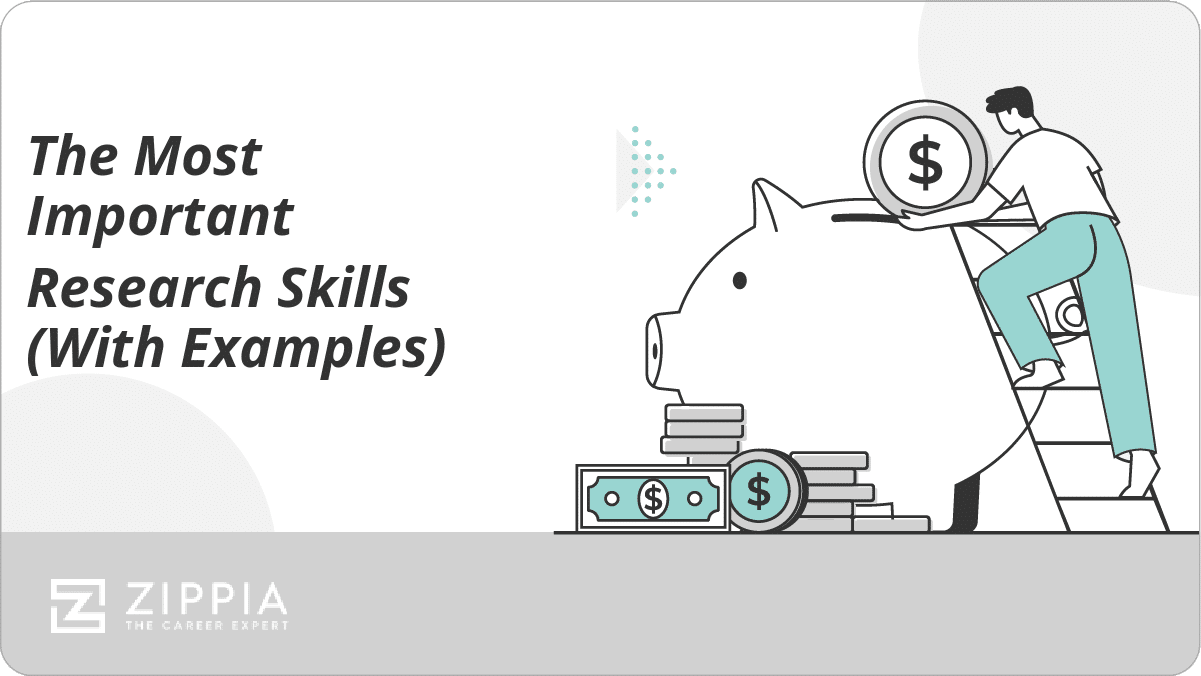
What are research skills?
Why are research skills important, 12 of the most important research skills, how to improve your research skills, highlighting your research skills in a job interview, how to include research skills on your resume, resume examples showcasing research skills, research skills faqs.
- Sign Up For More Advice and Jobs
Research skills are the necessary tools to be able to find, compile, and interpret information in order to answer a question. Of course, there are several aspects to this. Researchers typically have to decide how to go about researching a problem — which for most people is internet research.
In addition, you need to be able to interpret the reliability of a source, put the information you find together in an organized and logical way, and be able to present your findings to others. That means that they’re comprised of both hard skills — knowing your subject and what’s true and what isn’t — and soft skills. You need to be able to interpret sources and communicate clearly.
Research skills are useful in any industry, and have applications in innovation, product development, competitor research, and many other areas. In addition, the skills used in researching aren’t only useful for research. Being able to interpret information is a necessary skill, as is being able to clearly explain your reasoning.
Research skills are used to:
Do competitor research. Knowing what your biggest competitors are up to is an essential part of any business. Researching what works for your competitors, what they’re doing better than you, and where you can improve your standing with the lowest resource expenditure are all essential if a company wants to remain functional.
Develop new processes and products. You don’t have to be involved in research and development to make improvements in how your team gets things done. Researching new processes that make your job (and those of your team) more efficient will be valued by any sensible employer.
Foster self-improvement. Folks who have a knack and passion for research are never content with doing things the same way they’ve always been done. Organizations need independent thinkers who will seek out their own answers and improve their skills as a matter of course. These employees will also pick up new technologies more easily.
Manage customer relationships. Being able to conduct research on your customer base is positively vital in virtually every industry. It’s hard to move products or sell services if you don’t know what people are interested in. Researching your customer base’s interests, needs, and pain points is a valuable responsibility.
Save money. Whether your company is launching a new product or just looking for ways to scale back its current spending, research is crucial for finding wasted resources and redirecting them to more deserving ends. Anyone who proactively researches ways that the company can save money will be highly appreciated by their employer.
Solve problems. Problem solving is a major part of a lot of careers, and research skills are instrumental in making sure your solution is effective. Finding out the cause of the problem and determining an effective solution both require accurate information, and research is the best way to obtain that — be it via the internet or by observation.
Determine reliable information. Being able to tell whether or not the information you receive seems accurate is a very valuable skill. While research skills won’t always guarantee that you’ll be able to tell the reliability of the information at first glance, it’ll prevent you from being too trusting. And it’ll give the tools to double-check .
Experienced researchers know that worthwhile investigation involves a variety of skills. Consider which research skills come naturally to you, and which you could work on more.
Data collection . When thinking about the research process, data collection is often the first thing that comes to mind. It is the nuts and bolts of research. How data is collected can be flexible.
For some purposes, simply gathering facts and information on the internet can fulfill your need. Others may require more direct and crowd-sourced research. Having experience in various methods of data collection can make your resume more impressive to recruiters.
Data collection methods include: Observation Interviews Questionnaires Experimentation Conducting focus groups
Analysis of information from different sources. Putting all your eggs in one source basket usually results in error and disappointment. One of the skills that good researchers always incorporate into their process is an abundance of sources. It’s also best practice to consider the reliability of these sources.
Are you reading about U.S. history on a conspiracy theorist’s blog post? Taking facts for a presentation from an anonymous Twitter account?
If you can’t determine the validity of the sources you’re using, it can compromise all of your research. That doesn’t mean just disregard anything on the internet but double-check your findings. In fact, quadruple-check. You can make your research even stronger by turning to references outside of the internet.
Examples of reliable information sources include: Published books Encyclopedias Magazines Databases Scholarly journals Newspapers Library catalogs
Finding information on the internet. While it can be beneficial to consulate alternative sources, strong internet research skills drive modern-day research.
One of the great things about the internet is how much information it contains, however, this comes with digging through a lot of garbage to get to the facts you need. The ability to efficiently use the vast database of knowledge that is on the internet without getting lost in the junk is very valuable to employers.
Internet research skills include: Source checking Searching relevant questions Exploring deeper than the first options Avoiding distraction Giving credit Organizing findings
Interviewing. Some research endeavors may require a more hands-on approach than just consulting internet sources. Being prepared with strong interviewing skills can be very helpful in the research process.
Interviews can be a useful research tactic to gain first-hand information and being able to manage a successful interview can greatly improve your research skills.
Interviewing skills involves: A plan of action Specific, pointed questions Respectfulness Considering the interview setting Actively Listening Taking notes Gratitude for participation
Report writing. Possessing skills in report writing can assist you in job and scholarly research. The overall purpose of a report in any context is to convey particular information to its audience.
Effective report writing is largely dependent on communication. Your boss, professor , or general reader should walk away completely understanding your findings and conclusions.
Report writing skills involve: Proper format Including a summary Focusing on your initial goal Creating an outline Proofreading Directness
Critical thinking. Critical thinking skills can aid you greatly throughout the research process, and as an employee in general. Critical thinking refers to your data analysis skills. When you’re in the throes of research, you need to be able to analyze your results and make logical decisions about your findings.
Critical thinking skills involve: Observation Analysis Assessing issues Problem-solving Creativity Communication
Planning and scheduling. Research is a work project like any other, and that means it requires a little forethought before starting. Creating a detailed outline map for the points you want to touch on in your research produces more organized results.
It also makes it much easier to manage your time. Planning and scheduling skills are important to employers because they indicate a prepared employee.
Planning and scheduling skills include: Setting objectives Identifying tasks Prioritizing Delegating if needed Vision Communication Clarity Time-management
Note-taking. Research involves sifting through and taking in lots of information. Taking exhaustive notes ensures that you will not neglect any findings later and allows you to communicate these results to your co-workers. Being able to take good notes helps summarize research.
Examples of note-taking skills include: Focus Organization Using short-hand Keeping your objective in mind Neatness Highlighting important points Reviewing notes afterward
Communication skills. Effective research requires being able to understand and process the information you receive, either written or spoken. That means that you need strong reading comprehension and writing skills — two major aspects of communication — as well as excellent listening skills.
Most research also involves showcasing your findings. This can be via a presentation. , report, chart, or Q&A. Whatever the case, you need to be able to communicate your findings in a way that educates your audience.
Communication skills include: Reading comprehension Writing Listening skills Presenting to an audience Creating graphs or charts Explaining in layman’s terms
Time management. We’re, unfortunately, only given 24 measly hours in a day. The ability to effectively manage this time is extremely powerful in a professional context. Hiring managers seek candidates who can accomplish goals in a given timeframe.
Strong time management skills mean that you can organize a plan for how to break down larger tasks in a project and complete them by a deadline. Developing your time management skills can greatly improve the productivity of your research.
Time management skills include: Scheduling Creating task outlines Strategic thinking Stress-management Delegation Communication Utilizing resources Setting realistic expectations Meeting deadlines
Using your network. While this doesn’t seem immediately relevant to research skills, remember that there are a lot of experts out there. Knowing what people’s areas of expertise and asking for help can be tremendously beneficial — especially if it’s a subject you’re unfamiliar with.
Your coworkers are going to have different areas of expertise than you do, and your network of people will as well. You may even know someone who knows someone who’s knowledgeable in the area you’re researching. Most people are happy to share their expertise, as it’s usually also an area of interest to them.
Networking involves: Remembering people’s areas of expertise Being willing to ask for help Communication Returning favors Making use of advice Asking for specific assistance
Attention to detail. Research is inherently precise. That means that you need to be attentive to the details, both in terms of the information you’re gathering, but also in where you got it from. Making errors in statistics can have a major impact on the interpretation of the data, not to mention that it’ll reflect poorly on you.
There are proper procedures for citing sources that you should follow. That means that your sources will be properly credited, preventing accusations of plagiarism. In addition, it means that others can make use of your research by returning to the original sources.
Attention to detail includes: Double checking statistics Taking notes Keeping track of your sources Staying organized Making sure graphs are accurate and representative Properly citing sources
As with many professional skills, research skills serve us in our day to day life. Any time you search for information on the internet, you’re doing research. That means that you’re practicing it outside of work as well. If you want to continue improving your research skills, both for professional and personal use, here are some tips to try.
Differentiate between source quality. A researcher is only as good as their worst source. Start paying attention to the quality of the sources you use, and be suspicious of everything your read until you check out the attributions and works cited.
Be critical and ask yourself about the author’s bias, where the author’s research aligns with the larger body of verified research in the field, and what publication sponsored or published the research.
Use multiple resources. When you can verify information from a multitude of sources, it becomes more and more credible. To bolster your faith in one source, see if you can find another source that agrees with it.
Don’t fall victim to confirmation bias. Confirmation bias is when a researcher expects a certain outcome and then goes to find data that supports this hypothesis. It can even go so far as disregarding anything that challenges the researcher’s initial hunch. Be prepared for surprising answers and keep an open mind.
Be open to the idea that you might not find a definitive answer. It’s best to be honest and say that you found no definitive answer instead of just confirming what you think your boss or coworkers expect or want to hear. Experts and good researchers are willing to say that they don’t know.
Stay organized. Being able to cite sources accurately and present all your findings is just as important as conducting the research itself. Start practicing good organizational skills , both on your devices and for any physical products you’re using.
Get specific as you go. There’s nothing wrong with starting your research in a general way. After all, it’s important to become familiar with the terminology and basic gist of the researcher’s findings before you dig down into all the minutia.
A job interview is itself a test of your research skills. You can expect questions on what you know about the company, the role, and your field or industry more generally. In order to give expert answers on all these topics, research is crucial.
Start by researching the company . Look into how they communicate with the public through social media, what their mission statement is, and how they describe their culture.
Pay close attention to the tone of their website. Is it hyper professional or more casual and fun-loving? All of these elements will help decide how best to sell yourself at the interview.
Next, research the role. Go beyond the job description and reach out to current employees working at your desired company and in your potential department. If you can find out what specific problems your future team is or will be facing, you’re sure to impress hiring managers and recruiters with your ability to research all the facts.
Finally, take time to research the job responsibilities you’re not as comfortable with. If you’re applying for a job that represents increased difficulty or entirely new tasks, it helps to come into the interview with at least a basic knowledge of what you’ll need to learn.
Research projects require dedication. Being committed is a valuable skill for hiring managers. Whether you’ve had research experience throughout education or a former job, including it properly can boost the success of your resume .
Consider how extensive your research background is. If you’ve worked on multiple, in-depth research projects, it might be best to include it as its own section. If you have less research experience, include it in the skills section .
Focus on your specific role in the research, as opposed to just the research itself. Try to quantify accomplishments to the best of your abilities. If you were put in charge of competitor research, for example, list that as one of the tasks you had in your career.
If it was a particular project, such as tracking the sale of women’s clothing at a tee-shirt company, you can say that you “directed analysis into women’s clothing sales statistics for a market research project.”
Ascertain how directly research skills relate to the job you’re applying for. How strongly you highlight your research skills should depend on the nature of the job the resume is for. If research looks to be a strong component of it, then showcase all of your experience.
If research looks to be tangential, then be sure to mention it — it’s a valuable skill — but don’t put it front and center.
Example #1: Academic Research
Simon Marks 767 Brighton Blvd. | Brooklyn, NY, 27368 | (683)-262-8883 | [email protected] Diligent and hardworking recent graduate seeking a position to develop professional experience and utilize research skills. B.A. in Biological Sciences from New York University. PROFESSIONAL EXPERIENCE Lixus Publishing , Brooklyn, NY Office Assistant- September 2018-present Scheduling and updating meetings Managing emails and phone calls Reading entries Worked on a science fiction campaign by researching target demographic Organizing calendars Promoted to office assistant after one year internship Mitch’s Burgers and Fries , Brooklyn, NY Restaurant Manager , June 2014-June 2018 Managed a team of five employees Responsible for coordinating the weekly schedule Hired and trained two employees Kept track of inventory Dealt with vendors Provided customer service Promoted to restaurant manager after two years as a waiter Awarded a $2.00/hr wage increase SKILLS Writing Scientific Research Data analysis Critical thinking Planning Communication RESEARCH Worked on an ecosystem biology project with responsibilities for algae collection and research (2019) Lead a group of freshmen in a research project looking into cell biology (2018) EDUCATION New York University Bachelors in Biological Sciences, September 2016-May 2020
Example #2: Professional Research
Angela Nichols 1111 Keller Dr. | San Francisco, CA | (663)-124-8827 |[email protected] Experienced and enthusiastic marketer with 7 years of professional experience. Seeking a position to apply my marketing and research knowledge. Skills in working on a team and flexibility. EXPERIENCE Apples amp; Oranges Marketing, San Francisco, CA Associate Marketer – April 2017-May 2020 Discuss marketing goals with clients Provide customer service Lead campaigns associated with women’s health Coordinating with a marketing team Quickly solving issues in service and managing conflict Awarded with two raises totaling $10,000 over three years Prestigious Marketing Company, San Francisco, CA Marketer – May 2014-April 2017 Working directly with clients Conducting market research into television streaming preferences Developing marketing campaigns related to television streaming services Report writing Analyzing campaign success statistics Promoted to Marketer from Junior Marketer after the first year Timberlake Public Relations, San Francisco, CA Public Relations Intern – September 2013–May 2014 Working cohesively with a large group of co-workers and supervisors Note-taking during meetings Running errands Managing email accounts Assisting in brainstorming Meeting work deadlines EDUCATION Golden Gate University, San Francisco, CA Bachelor of Arts in Marketing with a minor in Communications – September 2009 – May 2013 SKILLS Marketing Market research Record-keeping Teamwork Presentation. Flexibility
What research skills are important?
Goal-setting and data collection are important research skills. Additional important research skills include:
Using different sources to analyze information.
Finding information on the internet.
Interviewing sources.
Writing reports.
Critical thinking.
Planning and scheduling.
Note-taking.
Managing time.
How do you develop good research skills?
You develop good research skills by learning how to find information from multiple high-quality sources, by being wary of confirmation bias, and by starting broad and getting more specific as you go.
When you learn how to tell a reliable source from an unreliable one and get in the habit of finding multiple sources that back up a claim, you’ll have better quality research.
In addition, when you learn how to keep an open mind about what you’ll find, you’ll avoid falling into the trap of confirmation bias, and by staying organized and narrowing your focus as you go (rather than before you start), you’ll be able to gather quality information more efficiently.
What is the importance of research?
The importance of research is that it informs most decisions and strategies in a business. Whether it’s deciding which products to offer or creating a marketing strategy, research should be used in every part of a company.
Because of this, employers want employees who have strong research skills. They know that you’ll be able to put them to work bettering yourself and the organization as a whole.
Should you put research skills on your resume?
Yes, you should include research skills on your resume as they are an important professional skill. Where you include your research skills on your resume will depend on whether you have a lot of experience in research from a previous job or as part of getting your degree, or if you’ve just cultivated them on your own.
If your research skills are based on experience, you could put them down under the tasks you were expected to perform at the job in question. If not, then you should likely list it in your skills section.
University of the People – The Best Research Skills for Success
Association of Internet Research Specialists — What are Research Skills and Why Are They Important?
MasterClass — How to Improve Your Research Skills: 6 Research Tips
How useful was this post?
Click on a star to rate it!
Average rating / 5. Vote count:
No votes so far! Be the first to rate this post.

Sky Ariella is a professional freelance writer, originally from New York. She has been featured on websites and online magazines covering topics in career, travel, and lifestyle. She received her BA in psychology from Hunter College.
Recent Job Searches
- Registered Nurse Jobs Resume Location
- Truck Driver Jobs Resume Location
- Call Center Representative Jobs Resume Location
- Customer Service Representative Jobs Resume
- Delivery Driver Jobs Resume Location
- Warehouse Worker Jobs Resume Location
- Account Executive Jobs Resume Location
- Sales Associate Jobs Resume Location
- Licensed Practical Nurse Jobs Resume Location
- Company Driver Jobs Resume
Related posts
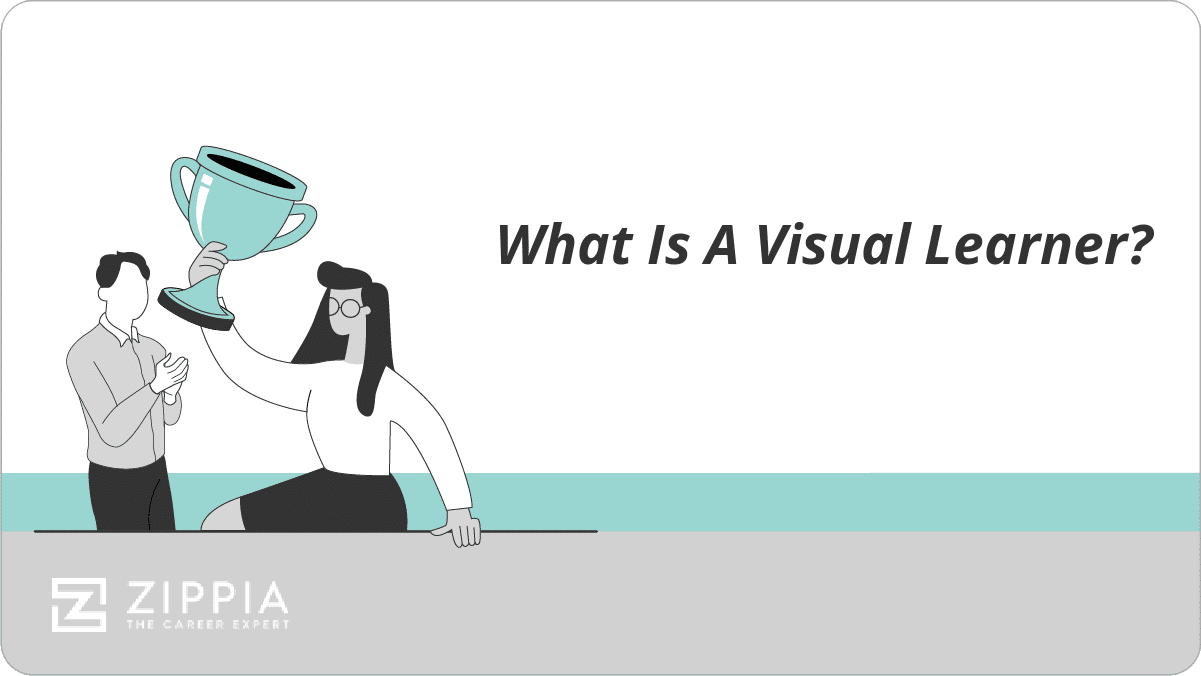
What Is A Visual Learner?
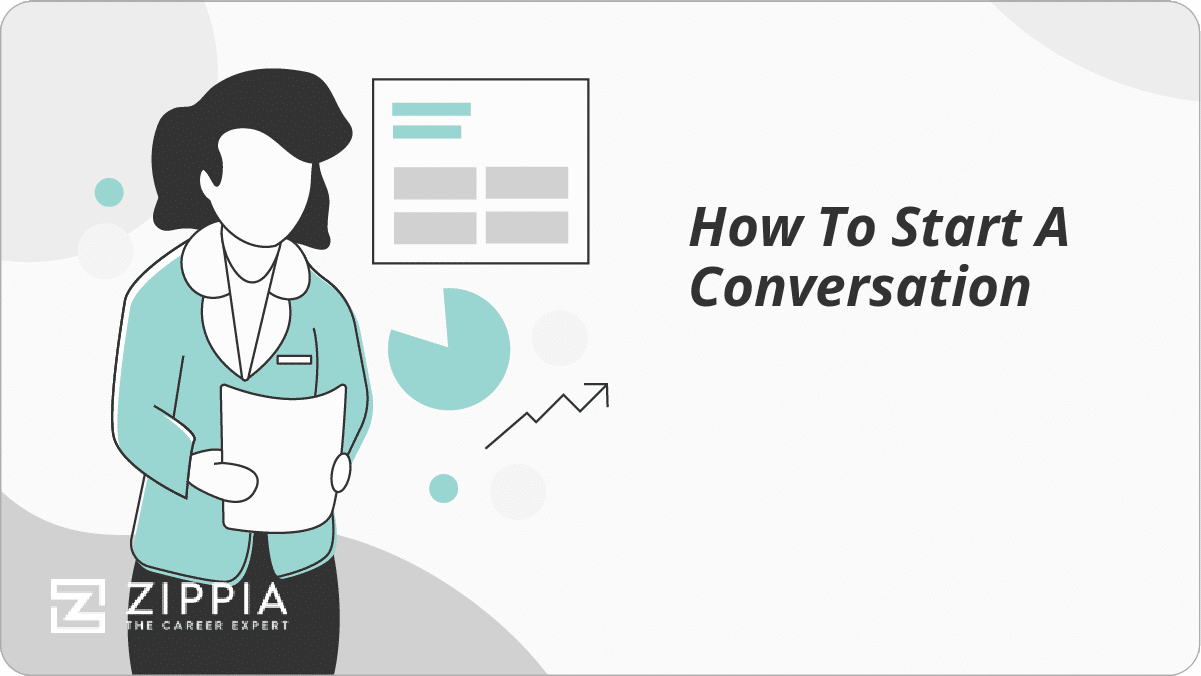
How To Start A Conversation: (55+ Examples For Every Situation + Tips)
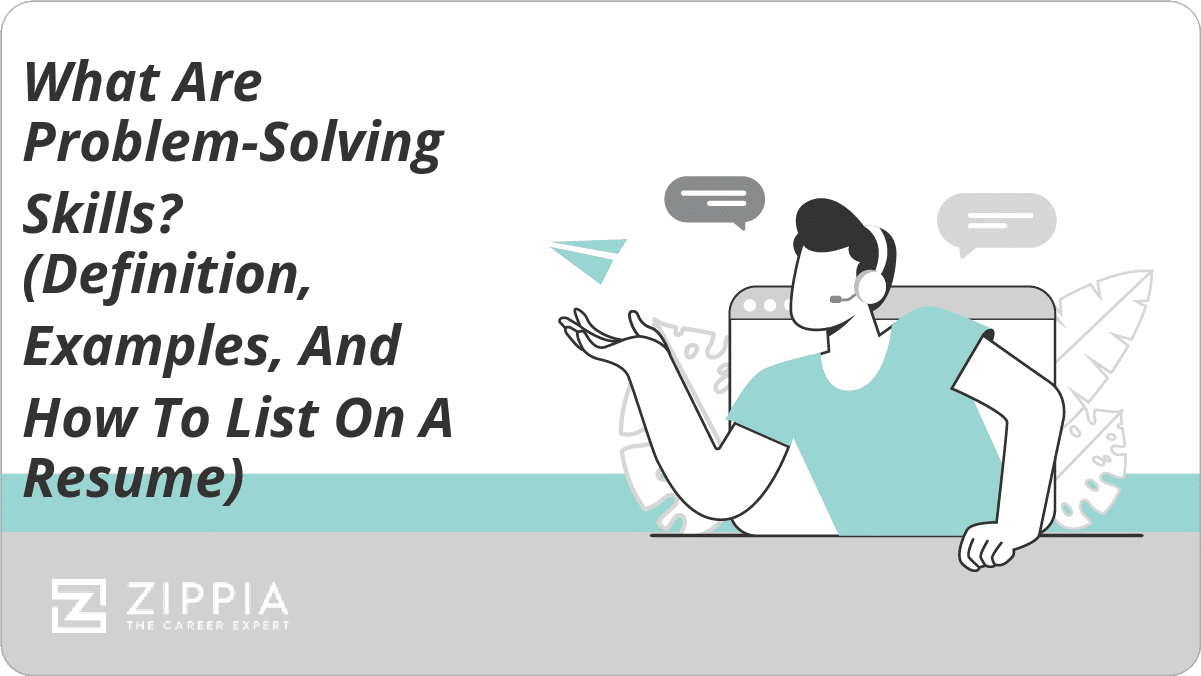
What Are Problem-Solving Skills? (Definition, Examples, And How To List On A Resume)
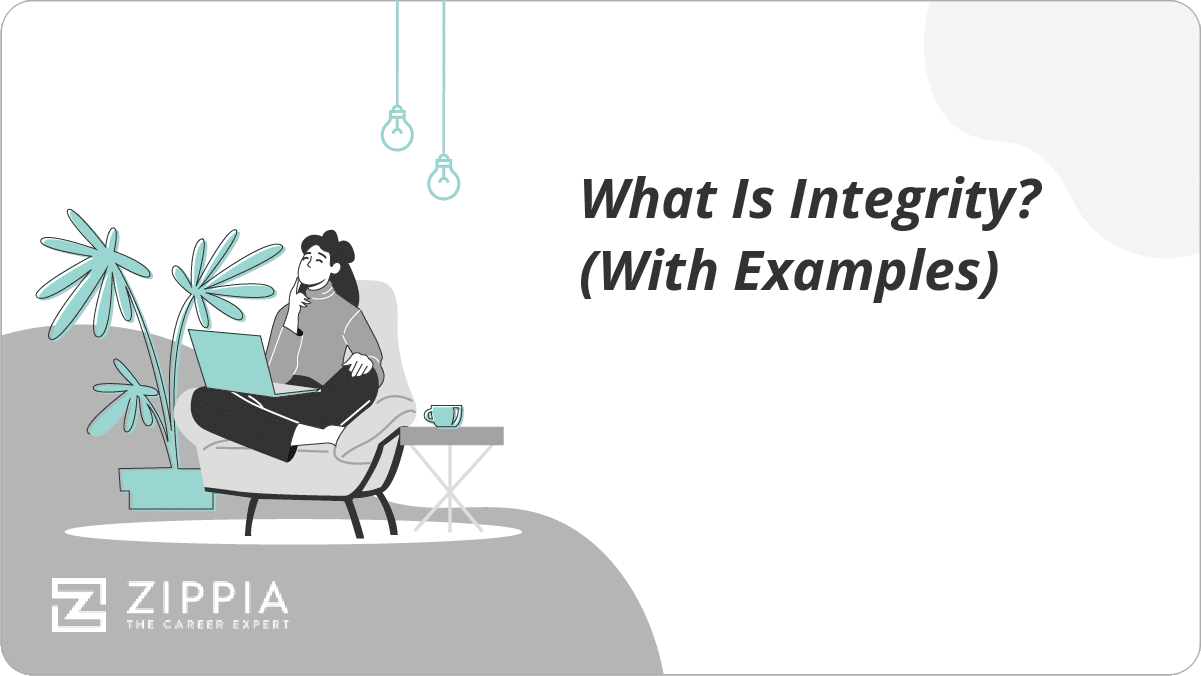
What Is Integrity? (With Examples)
- Career Advice >
- Hard Skills >
- Research Skills
Resource Library
The resource library houses materials to help UT researchers navigate research resources, enhance their skills, and better position themselves to access grant funding. Resources include recordings from previous OVPR events, tutorials, training sessions, instructions and documentation. Search or filter by topic, funding agency, or type.
- Broader Impacts
- Campus Resources for Research Support
- Campus Support Services for Research
- Conflict of Interest (COI)
- Department of Defense (DoD)
- Find Funding
- Foundation Funding
- Grant Writing
- Human Subjects
- Investigator Skill-Building
- National Council of University Research Administrators (NCURA)
- National Institute of Standards and Technology (NIST)
- National Institutes of Health (NIH)
- National Science Foundation (NSF)
- Research Administration
- Research Impact
- Research Integrity
- Research Management
NSF CAREER "Ask Us Anything" Panel Discussion
Research impact series: broader impacts partnerships, chips semiconductor research opportunities, grant lifecycle support from ut libraries, research impact series: broadening participation, from research to policy, data management and sharing practices for nih funded researchers, funding my research, strategic advice from nih study section reviewers, research impact series: deepening your understanding of broader impacts, demystifying indirect costs (idc), research impact series: developing your broader impacts identity, basics of dod funding: etiquette, cadence, and best practices, pivot: getting started, research to policy roadmap.

- 2022 Update
- 2021 Update
- 2020 Update
- Reputation and History
- Departments and Programs
- Faculty Recruiting
- Zoom Backgrounds
- Board of Visitors
- SCI Learning Academy
- Administration
- Faculty Directory
- Staff Directory
- PhD Students
- Diversity, Equity and Inclusion at SCI
- Diversity, Equity and Inclusion Committee
- School Initiatives and Resources
- University Initiatives and Resources
- Carving the path to safer and smarter buildings
- A holistic approach to intelligent social learning
- How to anticipate hiccups in health care
- Preserving a shared digital memory
- Holding information technologies accountable and addressing misinformation on the web
- More than an afterthought: Dr. Ibrahim shows students the necessity of cybersecurity
- Current Grants
- Faculty Accepting Undergraduate Students for Research
- Submit Research for Undergraduate Students
- Labs, Centers, and Institutes
- Visiting Scholars
- Undergraduate Research Scholars
- Degrees and Programs
- Find the Right Major for You
- Computational Biology
- Computational Social Science
- Computer Science
- Data Science
- Digital Narrative and Interactive Design
- Information Science
- BS + MS in Computer Science
- Physics and Quantum Computing
- Library and Information Science
- Intelligent Systems
- Telecommunications
- Computational Modeling and Simulation
- Information Science with a focus in Telecommunications
- Applied Data Driven Methods
- Big Data Analytics
- Cybersecurity, Policy, and Law
- Information and Network Security
- Professional Institute
- Types of Opportunities
- Experiential Learning Courses
- Meet Alexa Spaventa
- Meet J. Stephanie Rose
- Meet Lydon Pelletier
- Meet Pedro Bustamante
- Meet Nico Campuzano
- Meet Andrea Michael
- Meet Kinori Rosnow
- Take the Next Step
- Undergraduate Admissions FAQ
- Master's Admissions
- Doctoral Admissions
- Certificate Admissions
- GRE Requirements
- Financial Aid
- Scholarships
- Campus Life
- Information Sessions
- A-Z Student Resources
- Responsibilities
- Placement Assessments
- General Education Requirements
- Major and Minor Declaration
- Faculty Mentors
- Contact the SCI Advising Center
- Building Hours
- Career Resources
- Post-Graduate Outcomes
- Enrollment Resources
- Graduation Process and Expectations
- Apply for Graduation
- School Recognition Ceremony
- Information Technology
- Graduate Student Orientation
- New Graduate Student FAQ
- Undergraduate Student Orientation
- Ombudsperson
- Academic Integrity Policy
- Experiential Learning Policies
- School Forms
- Student Appeals
- Student Organizations
- Academic Support and Tutoring
- Student Success Workshops
- Who to Contact
- Submit a News Item
- Event Assistance & Promotion
Brianna Moscarelli, MLIS Student, Researches the Manhattan Project in Field Experience
April 1, 2024
Learning skills with meaningful, real-world impacts after graduation is essential for all students, particularly those at the graduate level. Students in the Master of Library and Information Science (MLIS) program like Brianna Moscarelli can network, build skills, and learn more about different career paths through the program’s field experience elective.
Moscarelli is completing her three-credit field experience at Ursinus College. There, she has participated in research on the Manhattan Project and Ursinus College’s contributions to it, including contributions from John DeWire, Ursinus College alum.
“Working at Ursinus College, I learned the importance of working with my co-librarians and how a library truly functions as a team,” stated Moscarelli. “I gained an appreciation for the history and culture of the college through my work in archives and metadata. Living rather closely to Ursinus College, I was able to get a glimpse of local history that I otherwise would not have the opportunity to learn.”
Rebecca J. Morris, a teaching associate professor in the Department of Information Culture and Data Stewardship, is the field experience coordinator for the MLIS program and has worked with Moscarelli on this experience.
“In the classroom component, students read about topics like mentoring, workplace conflicts, and self-care and wellness on the job. They then connect this to what they’re noticing in their respective professional settings,” said Morris. “Each semester brings a new set of students, some new and familiar organizations, and great opportunities to help students bridge their classroom learning and their professional ambitions.”
Over 130 hours, students work in professional settings like libraries and archives to gain on-site experience with library and information professionals. In addition to their on-site work, students must complete 20 hours of classroom meetings and discussions, designed and facilitated by Morris.
Moscarelli emphasizes the benefits that field experiences have for students academically and professionally. Through on-site experience, students learn to navigate different workplace environments and career paths in an effective and constructive way.
“In my field experience, I learned that while we want a better future for libraries and discuss the perfect and ideal wants and needs for the library, working in the position reminds us that we need to work to get there,” declared Moscarelli. “I found that working in the field experience was a great opportunity to apply the skills that our MLIS program provided in a situation where I can still learn, adapt, and be able to make errors while still having the guidance of a professor and supervisor.”
Moscarelli graduates from the MLIS program in April and intends to work as a librarian at a university. Her work at Ursinus College has provided insight into what career path she hopes to pursue after graduation.
“Currently, I work in an elementary school library as a Librarian Assistant and work part-time at Penn State University as a Libraries Specialist. I hope to move into a full-time role as a lead librarian,” remarked Moscarelli. “Librarians play an important role in research and resources for students, faculty, and staff. Without librarians working tirelessly to ensure that their online and physical collection is up-to-date, relevant, and accessible, colleges and universities would not have the resources and services that they currently have. Academia needs librarians.”
Learn more about Moscarelli’s research and the MLIS field experience !
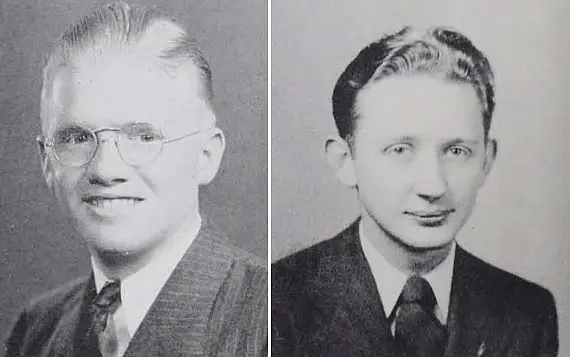
Pictured at left is John DeWire ’38 and at right is Evan Snyder ’44. Portraits from Ursinus College Ruby yearbooks.
--Alyssa Morales
We're still accepting applications for fall 2024!
- Skip to content
- Skip to search
- Accessibility Policy
- Report an Accessibility Issue

- Staying grounded: Building public health skills for local impact
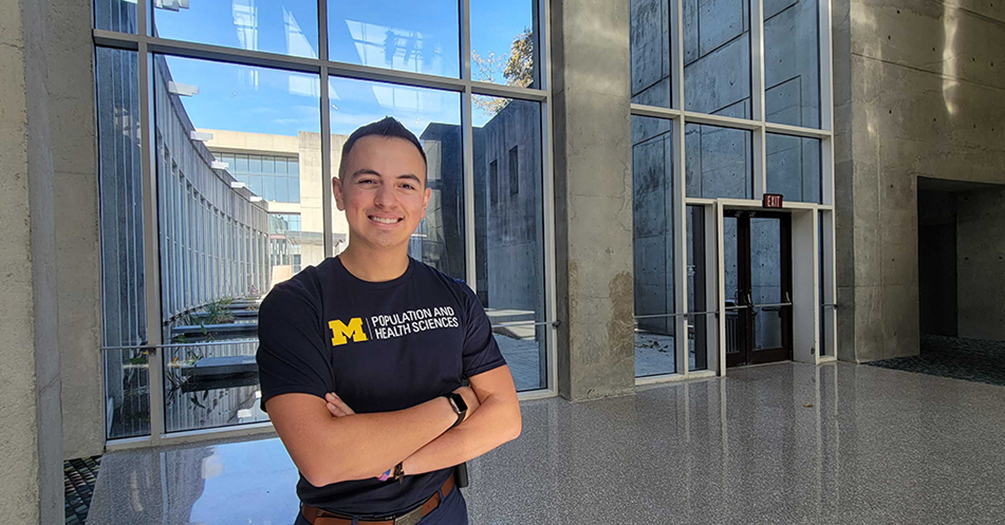
Matthew Hernandez, MPH ’24
Online mph in population and health sciences.
April 1, 2024
Despite coming from a family full of health professionals, Matthew Hernandez was not initially interested in taking that path.
He began developing a career in higher education, an area he remains in now as the director of Institutional Excellence and Culture at Texas Tech University Health Sciences Center in Lubbock, Texas. It wasn’t until he took a role with an academic health sciences center that he was exposed to public health. He is now passionate about pursuing public health.
“I didn’t realize that public health really impacted me in so many ways growing up,” said Hernandez, who will graduate in May 2024 with a Master of Public Health degree from the University of Michigan School of Public Health’s Online MPH program in Population and Health Sciences .
As a person living with type 1 diabetes, he said it wasn’t hard to identify how important public health has been to his life.
“The first time I really realized the impact of public health on me was when I had to spend over $400 on a vial of insulin, and that is a basic need for me,” Hernandez said. “I have to go to the pharmacy to purchase it and then manually deliver it to myself just to make sure that everything is taken care of with digestion and regulating my blood sugar.
“It gave me a lot of perspective because at the time that was close to the amount I was paying in rent. At that time, I had to make decisions like that: Do I need to purchase insulin or do I need to pay my rent?”
[The Online MPH] is an outstanding program and I get to do it from my home in Texas. I don’t have to be in Ann Arbor to access a world-class education through the program.”
This was at a time of transition for Hernandez’s family, during which he wasn’t able to rely on insurance. Fortunately, he was also able to find resources on the Texas Tech campus to make it through those difficult points. Still, the experience opened his eyes to issues of affordability and access in health.
“That example sticks with me today, of how public health impacts people in a variety of ways,” Hernandez said. “We, of course, want it to be in a positive way. But it can also really relegate individuals based on a number of factors, be it socioeconomic status, education levels or the like.”
He said it was an ignition point for him: “It really got me fired up.”
Hernandez had spent several years of his career focused on diversity, equity and inclusion (DEI), an area that is adjacent to public health in many ways.
“With our state legislature passing certain laws recently, that’s no longer allowed,” he said. “So, my work has shifted pretty dramatically, but still focuses on providing outstanding patient care to the people of West Texas and parts of Central Texas.”
Because of this shift, he decided it was the right time to explore plans for the future. Hernandez became interested in learning about the foundations of public health with the goal of being able to contribute to public health research. Through the online MPH program, he said he’s gained the necessary skills to achieve those research goals.
“I learned about things like odds ratios and risk rate ratios, those types of things that I can then apply in a space where I’m conducting that research and understand how all the moving parts work together,” he said. “It’s definitely a good catalyst for me to go into that environment after I graduate.”
Despite recent state laws limiting his previous career trajectory, Hernandez considers Texas his home and says he hopes he’ll be able to remain there to make an impact on communities that matter to him. That’s part of the reason he chose an online graduate program. It turned out to be the right decision for him.
“It’s an outstanding program and I get to do it from my home in Texas,” Hernandez said. “I don’t have to be in Ann Arbor to access a world-class education through the program.”
He’s even been able to apply what he’s learned to his current work in meaningful ways.
“The path of courses I’ve taken has really aligned with projects I’m working on now,” Hernandez said. “For example, with the health program evaluation course, I’ve been able to use the concepts to look at how we can assess our university’s campus climate. Considering things like ‘What do we want to know?’ and ‘How do we ask that question in an appropriate way?’”
Reflecting on what he learned in a course focused on community engagement, he said he’s been able to reimagine how he views leadership in his professional role and how he can share leadership on initiatives with community leaders.
“Rather than just informing community leaders about things that we’re doing, we can involve them,” Hernandez said. “What we’re doing can be much more effective when you actually share that leadership and develop something together.
“I’ve definitely seen a direct impact. I can apply concepts I’m learning in class about that environment and translate them into what I’m doing professionally immediately. That’s been great.”
I think that there are a lot of opportunities for me and for my colleagues to contribute to that growing body of research that says, ‘This is objective—that we need to focus on underserved communities—because when underserved communities are healthier, we are all healthier.’”
Hernandez has long aspired to continue his education and pursue doctoral studies. He’s now exploring PhD programs in public health that will help him support the development of programs for underserved communities. He hopes to initiate research that can facilitate greater awareness about the needs of those communities across the nation and world.
“I think that there are a lot of opportunities for me and for my colleagues to contribute to that growing body of research that says, ‘This is objective—that we need to focus on underserved communities—because when underserved communities are healthier, we are all healthier,’” Hernandez said.
Hernandez explained that what he’s appreciated most about his graduate experience is getting to connect with people who share the same values as him.
“The special thing about the program is that there are so many different people from different backgrounds,” he said. “We have an attorney in our program, mathematicians, people who are doing health communications, and we’re all working toward the same goal.”
The community he’s found in the online MPH program has enriched Hernandez’s learning experience.
“Hopefully, I will hold onto the relationships I’ve built for the rest of my life,” Hernandez said. “Just keeping those connections and continuing the curiosity, even simply keeping up with what my peers are doing.”
As he prepares to graduate in May, Hernandez said what will set him up well for his next steps is how much his classmates and program have inspired him to remain curious.
“I’m looking forward to treating my brain like a sponge,” he said, “and taking in everything I can and seeing ways that I can apply that in the communities that I end up serving.”
- Interested in public health? Learn more here.
- Learn more about the Online MPH program.
- Read more stories about students, alumni, faculty, and staff.
- Support research and engaged learning at the School of Public Health.
- We Are Michigan Public Health
- Diversity Equity and Inclusion
- Health Care
- Health Care Access
- Health Care Management
- Health Disparities
Recent Posts
- COVID-19 experience influences career in health policy and equity
- Alumna sees public health at work in 'everything'
- Beirut tragedy inspires graduate's public health mission
What We’re Talking About
- Adolescent Health
- Air Quality
- Alternative Therapies
- Biostatistics
- Breastfeeding
- Child Health
- Chronic Disease
- Community Partnership
- Computational Epidemiology and Systems Modeling
- Disaster Relief
- Engaged Learning
- Entrepreneurship
- Environmental Health
- Epidemiologic Science
- Epidemiology
- Epigenetics
- Field Notes
- First Generation Students
- Food Policy
- Food Safety
- General Epidemiology
- Global Health Epidemiology
- Global Public Health
- Graduation 2019
- HMP Executive Masters
- Health Behavior and Health Education
- Health Care Policy
- Health Communication
- Health Informatics
- Health for Men
- Health for Women
- Heart Disease
- Hospital Administration
- Hospital and Molecular Epidemiology
- Industrial Hygiene
- Infectious Disease
- Internships
- LGBT Health
- Maternal Health
- Mental Health
- Mobile Health
- Occupational and Environmental Epidemiology
- Pain Management
- Pharmaceuticals
- Precision Health
- Professional Development
- Reproductive Health
- Scholarships
- Sexual Health
- Social Epidemiology
- Social Media
- Student Organizations
- Urban Health
- Urban Planning
- Value-Based Care
- Water Quality
- What Is Public Health?
Information For
- Prospective Students
- Current Students
- Alumni and Donors
- Community Partners and Employers
- About Public Health
- How Do I Apply?
- Departments
- Findings magazine
Student Resources
- Career Development
- Certificates
- The Heights Intranet
- Update Contact Info
- Report Website Feedback
Office of the Vice President for Research
Ovpr announces recipients of 2024 discovery and innovation awards.
The Office of the Vice President for Research (OVPR) is honoring 11 faculty and staff for their exceptional contributions to research, scholarship, and creative activity as part of the 2024 Discovery and Innovation Awards .
“ The winners represent the best and the brightest of our University of Iowa faculty and staff, who are making an impact across a range of disciplines,” said Marty Scholtz, vice president for research. “Their research and scholarship enhance undergraduate and graduate education on campus, and their efforts to expand the frontiers of discovery betters our community, state, and world.”
The OVPR solicited nominations from across campus for the awards, which include: Scholar of the Year, Early Career Scholar of the Year, Leadership in Research, and awards that recognize achievement in communicating scholarship with public audiences, community engagement, arts and humanities, mentorship, research administration and safety. A campuswide event on April 30 will celebrate the winners.
Faculty Awards
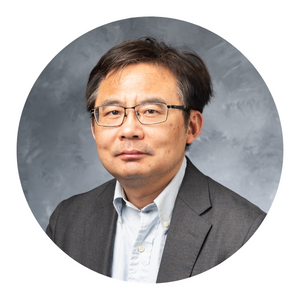
Jun Wang , James E. Ashton Professor and interim departmental executive officer in the College of Engineering’s
Department of Chemical and Biochemical Engineering, is the 2024 Scholar of the Year . The award celebrates nationally recognized recent achievement in outstanding research, scholarship, and/or creative activities.
Wang’s research centers on the development of novel remote sensing techniques to characterize aerosols and fires from space. He serves as the University of Iowa’s lead investigator on NASA’s TEMPO, Tropospheric Emissions: Monitoring Pollution, which Time magazine named one of its best inventions of 2023.
“Professor Wang's scholarly endeavors over the past two years stand out as a paradigm of excellence, serving as an exemplary model for both emerging and seasoned faculty members to aspire toward,” said Karim Abdel-Malek, professor of biomedical engineering and director of the Iowa Technology Institute.

James Byrne , assistant professor of radiation oncology in the Carver College of Medicine ( CCOM ), is the 2024 Early Career Scholar of the Year . The award honors assistant professors who are currently involved in research, scholarship, and/or creative activity and show promise of making a significant contribution to their field.
As a physician scientist, Byrne continues to care for patients while developing novel biomedical therapies for cancer, finding inspiration in everything from latte foam to tardigrades. In his first two years as faculty at the UI, he has earned more that $2.5M in external research funding, including a K08 award from the NIH.
“Dr. Byrne’s scientific creativity stems from both an active and curious mind as well as his ability to bridge diverse fields from engineering to biology to medicine,” said Michael Henry, professor and interim director of the Holden Comprehensive Cancer Center. “These interdisciplinary boundaries are where some of the most interesting and important work is happening today.”

Donna Santillan , research professor and director of the Division of Reproductive Science Research in the CCOM Department of Obstetrics and Gynecology, received the Leadership in Research Award , which recognizes research and scholarly accomplishments throughout a career.
While Santillan’s research has spanned across the field of reproductive science, she has a particular interest in the deadly diseases of pregnancy, including preeclampsia and its intergenerational effects. She designed and directs the Women’s Health Tissue Repository. Santillan’s work has been cited more than 2,700 times, and she has mentored 114 early career scientists and students, a testament to her expansive impact.
“Dr. Santillan has consistently demonstrated an unwavering commitment to fostering the professional and personal development of trainees in research, including myself,” said Banu Gumusoglu, assistant professor of obstetrics and gynecology. “Her mentorship extends beyond the confines of traditional academic settings, touching the lives of many aspiring trainees from high school through residency, clinical fellowship, and faculty levels.”

Stephen Warren , professor of history and American studies in the College of Liberal Arts and Sciences (CLAS), received the Distinguished Achievement in Publicly Engaged Research Award . The award recognizes an individual faculty member who has put addressing public needs and direct engagement with the public, in the service of improving quality of life through research, at the forefront of his or her academic activities.
A prolific scholar of Native American culture, Warren’s research has centered on the Shawnee people of Oklahoma for the past two decades. He has published four books and co-authored the most recent one , Replanting Cultures: Community-Engaged Scholarship in Indian Country, with Chief Benjamin Barnes of the Shawnee Tribe.
“Over the last two decades, Professor Warren has established himself as a leading community-engaged scholar, and his achievements in research and publishing demonstrate that community engagement and strong scholarship are not mutually exclusive,” said Nick Benson, director of the Office of Community Engagement. “Professor Warren’s work serves as an inspiration for researchers at Iowa and nationally who seek not only to make a difference in academia, but also in our communities.”
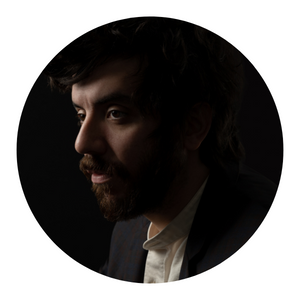
Kaveh Akbar , associate professor of English in CLAS, received the Distinguished Achievement in Arts and Humanities Research Award . This award honors distinguished achievement in humanities scholarship and work in the creative, visual and performing arts.
Akbar joined Iowa in 2022 to serve as the director of the English and creative writing major. In January, his new novel, Martyr!, was published to critical acclaim. Akbar previously published two prize-winning poetry collections and has served as poetry editor for The Nation since 2021.
“Akbar’s leadership in the profession and on campus continues: his transformative work in our department not only enriches the academic experiences of 700+ English and creative writing majors, but also enhances the profile of UI as ‘The Writing University,’” said Blaine Greteman, professor and departmental executive officer of the Department of English.

Cara Hamann , associate professor of epidemiology, received the Faculty Communicating ideas Award . This award recognizes excellence in communication about research and scholarship in the sciences and humanities and the study of creative, visual, and performing arts to a general audience directly or via print and electronic media.
Hamann has frequently shared her work on transportation issues, including teen driving, bike and scooter safety, and pedestrian safety, through peer-reviewed journals and extensive media outreach. Her recent op-ed, “The most deadly traffic policy you’ve never heard of leaves you vulnerable, too,” drew widespread attention to a legal loophole in crosswalk laws and appeared in more than 50 news outlets nationwide, including USA Today .
“Dr. Hamann’s work is not only academically rigorous but also accessible and impactful to a
wide audience,” said Diane Rohlman, associate dean for research in the College of Public Health. “Her ability to communicate with clarity, creativity, and passion coupled with her extensive media outreach, exemplifies how she utilizes multiple approaches to address transportation challenges impacting society.”

Bob McMurray , F. Wendell Miller Professor in the Department of Psychological and Brain Sciences, and Caroline Clay , assistant professor of acting in the Department of Theatre Arts, were recipients of the Office of Undergraduate Research (OUR) Distinguished Mentor Awards . The awards honors mentors’ dedication to making their students research experiences successful.
“I can’t imagine my research journey without Bob’s welcoming kindness, thriving lab community, and confident mentorship, and I am so deeply grateful for his impact on me,” said Hannah Franke, a psychology and linguistics major mentored by McMurray.
“I know I am far from the only student whose life has been impacted by Caroline Clay,” said Isabella Hohenadel, a second-year theatre arts major. “She deserves to be recognized of all of the wonderful work she does and how much she cares about us as students. I cannot think of anyone more deserving of recognition than her.”
Staff Awards

Angie Robertson , department administrator for CCOM’s Department of Microbiology and Immunology, received the Distinguished Research Administrator Award . The award recognizes staff members who performed exceptional service in support of research at the UI by exploring funding opportunities, assisting in grant proposal preparation, submission, post-award administration, and operational support.
In addition to overseeing every aspect of daily operations for the department, Robertson manages nearly 100 research grants for the department and three longstanding NIH T32 training grants.
“Angie plays a leading role in our department office, inspiring us to achieve all aspects of our missions ,” said Li Wu, professor and department chair. “She is innovative, collaborative, accountable, and respectful in her daily work. She exceeds any expectations and sets a great example for staff members in the department.”
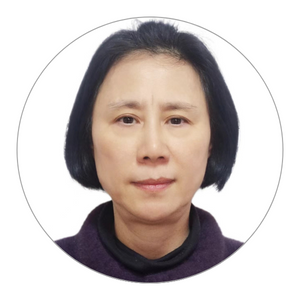
Min Zhu , research specialist in the Iowa Institute for Oral Health Research (IIOHR) within the College of Dentistry, received the Distinguished Research Professional Award . The award recognizes staff members who performed exceptional service in support of research at the UI by conducting experiments, collecting, and analyzing results and performing operational duties associated with a laboratory or research program.
Zhu has worked as a lab bench scientist in the College of Dentistry since 2006, executing experimental work for grants and other research, working closely with IIOHR faculty members, overseeing lab maintenance and environmental health and safety efforts.
“Beyond her research skills, Dr. Zhu has been an exceptional mentor and educator for my students and other junior researchers,” said Liu Hong, professor of prosthodontics. “Her kindness and willingness to share her knowledge have made her a beloved figure among them.”

Curtis Iberg , manager of sterilization services in the College of Dentistry, received the Innovation in Safety Award, which celebrates exceptional and ground-breaking innovations that advance safety at the UI. Iberg led a major renovation of the College of Dentistry’s instrument processing and sterilization area, with the aim of encouraging better workflow and support for future growth.
“His innovations in workspace are a valuable asset to the greater University and demonstrates that the most important people to be involved in a space renovation are those that use the area because they can see how the facility can better function and how it can be designed for future needs,” said Kecia Leary, associate dean of clinics.
Frist Center for Autism and Innovation

Preparing Autistic Students for the AI Workforce Project; Applications Open for Summer Training and Internships!
Posted by stasikjs on Saturday, March 30, 2024 in Internships and Applications .
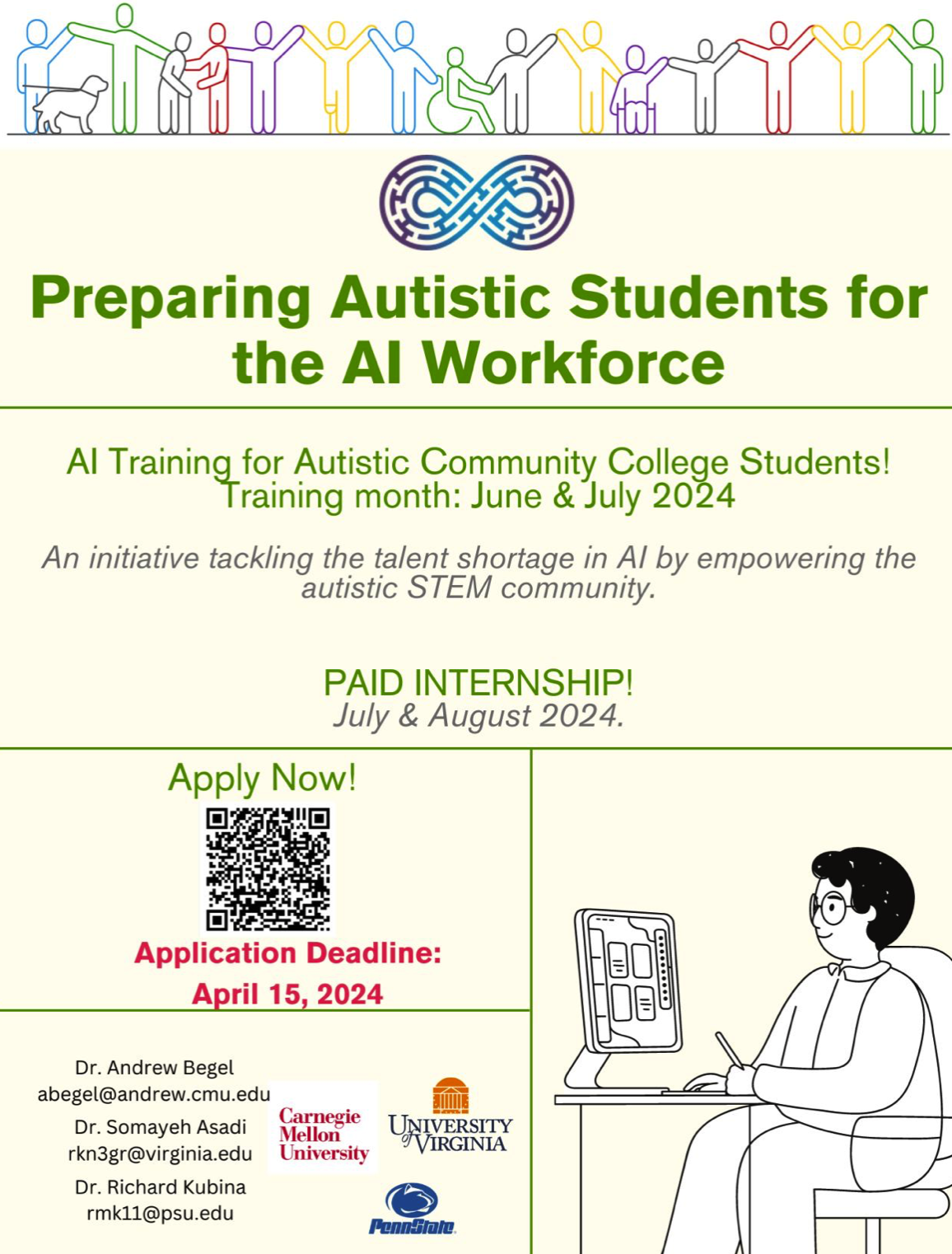
Applications are now open for the Preparing Autistic Students for the AI Workforce project!
Successful candidates will undertake a four-week training starting on June 17 , where they will learn the fundamentals of AI, machine learning, deep learning, generative AI (LLMs and ChatGPT), classification, optimization, and ethics. They will also learn various communication and teamwork skills essential to working in a data science team.
The program will match those who complete the course with companies offering paid, remote, 8-week summer internships to practice AI and teamwork skills!
Candidates should identify as autistic or Asperger’s, be over 18, be taking classes at a US-based community college (e.g., aiming for a 2-year degree or reskilling into a new career), and be interested in exploring careers in AI! Applications are due by April 15, 2024 .
Application and FAQ: https://cmu-variability.github.io/pas4aiworkforce/application.html
For more information, please email [email protected]
Comments are closed

Schools can close summer learning gaps with these 4 strategies
W hen it comes to summer learning, the benefits are well documented. Students who consistently attend well-planned, high-quality programs achieve higher scores on math and language arts testing. They also earn higher ratings from teachers on their social and emotional skills, research shows. Unfortunately, research also shows that students from low-income and minority backgrounds are less likely to attend – and benefit from – summer learning programs than their affluent and white peers.
Summer learning can play a crucial role in helping these students – and all kids – recover learning lost during the pandemic. The federal government has also acknowledged the importance of summer learning through its Elementary and Secondary School Emergency Relief Fund, or ESSER. The fund infused states with nearly US$190.5 billion , with 20% allocated to academic recovery, including summer programs .
So how can school districts capitalize on the crucial summer months and make learning more equitable?
In partnership with the Wallace Foundation and the District Summer Learning Network implemented by the nonprofit development organization FHI 360, our team at the Center for Policy, Research, and Evaluation at New York University is studying how districts implement high-quality summer programs with an eye toward equity. We analyzed 2022 summer planning documents from 26 districts and identified four strategies they’re using to make the programs more equitable.
1. Strategically target students
Of the summer learning plans we analyzed, we found that half prioritized students who need academic or behavioral support. Additionally, 42% mentioned English-language learners, and 35% mentioned students with disabilities.
Other distinct groups included low-income students, migrants, racial and ethnic minorities and gifted and talented students. Among districts that prioritized special groups, almost all of them included more than one group in their strategic outreach.
Which students get served in summer learning programs, and how they are served, has implications for equity. For instance, research has found that middle-income students often benefit more from summer learning programs than lower-income students.
This could be because high-quality programs tend to serve higher-income students, which raises concerns that summer learning programs may actually increase the summer gap if they are not targeted. High-quality programs that target lower-income students and other minority students can move the needle toward equity.
2. Reduce barriers to access
For students to access programs outside of the regular school day in an equitable way, simple accommodations , such as transportation, are key.
Several district summer learning plans we analyzed went above and beyond academics. They provided not just transportation but also free and nutritious meals, outreach material in different languages and extended day care services to support working families.
3. Design courses for specific student populations
Students learn best when they feel a sense of safety and belonging. By affirming and nurturing the unique identities of students, districts can make summer programming more equitable and accelerate learning. Research shows, for instance, that summer supports for English-language learners are key for their overall academic development.
Some districts tailored their programming to the individual interests and cultural needs of their students. For example, three districts – in both urban and rural communities – provided language classes for English-language learners, including adults.
Another district designed an arts program for students to explore and celebrate their culture. The program featured programming around ethnic and racial identities.
Despite a shortage of teacher applicants across the country, some districts also made efforts to hire teachers who are not only effective and well credentialed but also reflect the demographics of the student body they serve.
4. Engage families in planning and programming
Some districts held regular family education sessions to provide updates about student needs and progress. Some also engaged families by offering information sessions on topics such as immigration and health.
Programs that include the whole family or community are particularly helpful for racially, ethnically and linguistically diverse populations and families in rural areas, where young people have limited access to adults other than their caregivers.
When parents are included in the planning process, programs can be designed to better fit their schedules. This might mean districts offer full-day, six-week camps to support children throughout the summer while their parents work. This type of arrangement makes it more likely that kids will be able to attend summer programs – and stave off summer learning loss .
These four approaches help make summer learning programs more culturally responsive, accessible and inclusive. Over the next two years, our research will dive deeper into how districts strengthen equity-based practices and strategies to sustain them long term.
This article is republished from The Conversation , >, a nonprofit, independent news organization bringing you facts and analysis to help you make sense of our complex world.
- How community schools can beat summer learning loss for low-income students
- Year-round school: Difference-maker or waste of time?
Rhea Almeida does not work for, consult, own shares in or receive funding from any company or organization that would benefit from this article, and has disclosed no relevant affiliations beyond their academic appointment.


IMAGES
VIDEO
COMMENTS
Research skills. Academic integrity. Digital skills. Research skills allow you to find information and use it effectively. It includes creating a strategy to gather facts and reach conclusions so that you can answer a question. Top tips. Starting your research. think about your topic - don't be too vague or too specific (try mind mapping or ...
Empowering students to develop research skills. February 8, 2021. This post is republished from Into Practice, a biweekly communication of Harvard's Office of the Vice Provost for Advances in Learning. Terence D. Capellini, Richard B Wolf Associate Professor of Human Evolutionary Biology, empowers students to grow as researchers in his Building the Human Body course through a comprehensive ...
4:00pm to 5:30pm. Location: Zoom - TBA. PART 1: R3 and Me: A Toolkit for Rigorous and Reproducible Research (Jelena Patrnogić, PhD, HMS Curriculum Fellows Program) 4:00 PM - 4:45 PM. There is a reproducibility crisis in research. In 2016, Nature reported results from a survey demonstrating that more than 70% of researchers...
A librarian is always a good person to have around, especially when it comes to research. Most students don't seek help from their school librarian, however, this person tends to be someone with a vast amount of knowledge when it comes to research skills and where to look for reliable sources. 6. Use library databases.
To further develop the research skills of students, Manning in Radić-Bojanić et al. (2013) claimed that students must be aware of a range of sources of information (university, college, or ...
Welcome to this Research Skills guide, brought to you by Cambridge University Libraries. Researchers interact with information every day. You might be looking for articles, evaluating sources, writing up work for publication or disseminating your work more widely. And of course the literature does not just consist of books or papers, there's ...
Here are a few research practices and tips to help you hone your research and writing skills: 1. Start broad, then dive into the specifics. Researching is a big task, so it can be overwhelming to know where to start—there's nothing wrong with a basic internet search to get you started. Online resources like Google and Wikipedia, while not ...
The development of student research skills at university has been linked to enhancing the skills associated with critical thinking (Wass, Harland, and Mercer 2011 ), problem-solving (Missingham et al. 2016) and employability skills (Bandaranaike and Willison 2015 ), especially in the workplaces of those who become employed graduates (Willison ...
Develop skills to conduct high quality research and scholarship more effectively and responsibly. Research tools and techniques appropriate for an ecological model, emphasizing a multi-method approach. Advanced students select and study problem related to family, youth, and community sciences.
The Academic Skills Hub is where you will find opportunities and resources to develop your academic and writing skills . Researcher@Library. The University Library offers high quality resources and services to support you through the complete research lifecycle and help maximise your research outcomes. Effective Video Storytelling for Researchers
The Essex Student Journal is an online academic journal run by and for Essex students. The journal helps students develop their writing, feedback, and research skills by introducing them to the publishing world in a supportive environment. The Essex Student Journal is a multi-disciplinary journal dedicated to the publication of high-quality ...
The Research Skills tutorials are a set of 9 modules that provide a foundation of information literacy and critical thinking skills. Topics range from getting started with research, to evaluating and critiquing information sources, to citations. The modules are listed in a suggested order of completion, but users may complete any part of any ...
Research skills refer to the ability to search for, locate, extract, organise, evaluate and use or present information that is relevant to a particular topic. Academic research is a specific type of research: a process of detailed and methodical investigation into some area of study. It involves intensive search, investigation, and critical ...
Step 1: Conceptualisation. Step 2: Contextualisation. Step 3: Research design. Step 4: Data collection or generation. Step 5: Data analysis. Step 6: Reporting. Deciding on the research question (s) or hypotheses, describing the aims of the project, identifying how to collect or generate the data. ACCORDION: Converted tabs - this tab opens by ...
Research skills. As a student here, you'll be expected to find information to support your studies. Developing good information skills will help you do well in your course, as you'll be marked on the appropriateness of the information you choose. To find good quality information, you'll need to know: what to search for. where to search.
FutureLearn. 2 weeks, 2 hours a week. On-Demand. Free Online Course (Audit) Load the next 15 courses of 313. Best online courses in Research Skills from Stanford, MIT, University of Pennsylvania, University of Michigan and other top universities around the world.
The Research Skills Development (RSD) Framework, initiated by John Willison and Kerry O'Regan (Adelaide, AU), is a tool used to analyze and plan curriculum for the systematic development of students' research skills. ... (University of Adelaide, AU) spoke at the Student Research Skills Symposium (UW-Stout, Dec 2015). Research Skills Classroom ...
A defining part of any degree at the University of Manchester is that it develops your research and critical thinking skills but you can't assume that employers will take that for granted. You need to be able to articulate how you applied these skills. Most academic programmes will involve a formal research project or dissertation but the way ...
Well-developed RESEARCH SKILLS are at the core of good research. Using effective search strategies is vital to finding relevant sources. Selecting appropriate KEYWORDS and using BOOLEAN SEARCHES will greatly improve the quality and focus of your search results, especially while using DATABASES.. This page provides links to handouts, resources and tutorials focused on RESEARCH SKILLS, including ...
How to improve research skills . Practise your time management and organisation skills: Whether you're at university or in your early career, it's important to start learning how to balance your time effectively to complete a number of tasks. For your next project, try setting out clear activities that need to be completed, how long you need to spend on each, and a timeline for when each ...
Research skills are the ability to find out accurate information on a topic. They include being able to determine the data you need, find and interpret those findings, and then explain that to others. Being able to do effective research is a beneficial skill in any profession, as data and research inform how businesses operate.
Research skills are the ability to find an answer to a question or a solution to a problem. They include your ability to gather information about a topic, review that information and analyze and interpret the details in a way to support a solution. Having research skills is necessary to advance your career as they directly relate to your ...
Critical thinking. Critical thinking refers to a person's ability to think rationally and analyze and interpret information and make connections. This skill is important in research because it allows individuals to better gather and evaluate data and establish significance. Common critical thinking skills include: Open-mindedness.
The resource library houses materials to help UT researchers navigate research resources, enhance their skills, and better position themselves to access grant funding. Resources include recordings from previous OVPR events, tutorials, training sessions, instructions and documentation. Search or filter by topic, funding agency, or type.
The University of Miami Law Library is offering an all-day program with instructional sessions covering research topics from planning and strategy to performing legal research tasks using a wide range of legal materials. Whether you're wrapping up the first year of your law school journey or about to head out into the professional world, we want to help you get ready for your summer jobs ...
April 1, 2024 Learning skills with meaningful, real-world impacts after graduation is essential for all students, particularly those at the graduate level. Students in the Master of Library and Information Science (MLIS) program like Brianna Moscarelli can network, build skills, and learn more about different career paths through the program's field experience elective.
Matthew Hernandez, MPH '24, became interested in learning about the foundations of public health with the goal of being able to contribute to public health research. Through the online MPH program in Population and Health Sciences at the University of Michigan School of Public Health, he said he's gained the necessary skills to achieve those research goals.
The Office of the Vice President for Research (OVPR) is honoring 11 faculty and staff for their exceptional contributions to research, scholarship, and creative activity as part of the 2024 Discovery and Innovation Awards. "The winners represent the best and the brightest of our University of Iowa faculty and staff, who are making an impact across a range of disciplines," said Marty ...
The program will match those who complete the course with companies offering paid, remote, 8-week summer internships to practice AI and teamwork skills! Candidates should identify as autistic or Asperger's, be over 18, be taking classes at a US-based community college (e.g., aiming for a 2-year degree or reskilling into a new career), and be ...
middle-income students often benefit more. simple accommodations. affirming and nurturing English-language learners. limited access to adults. stave off summer learning loss. This article is ...